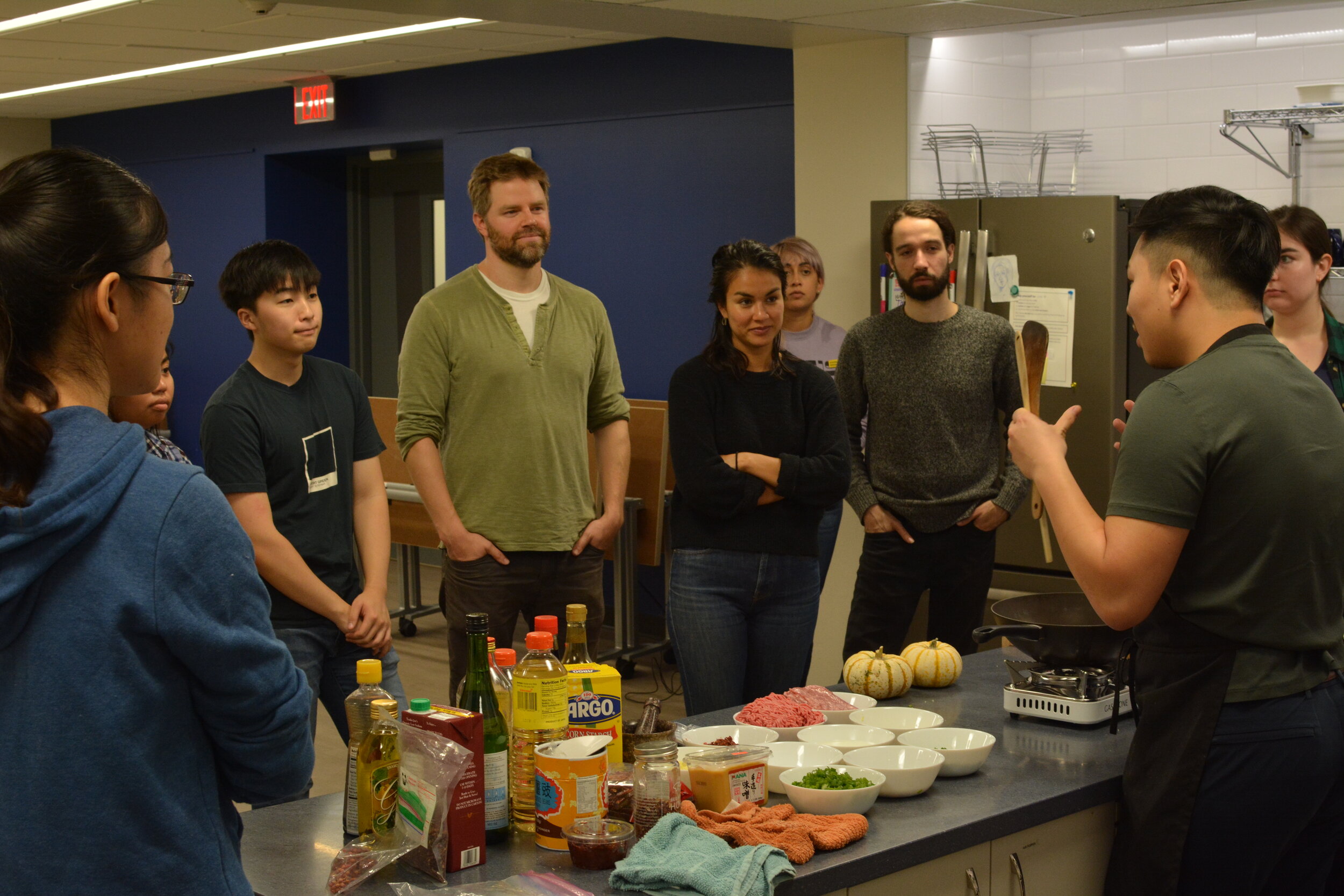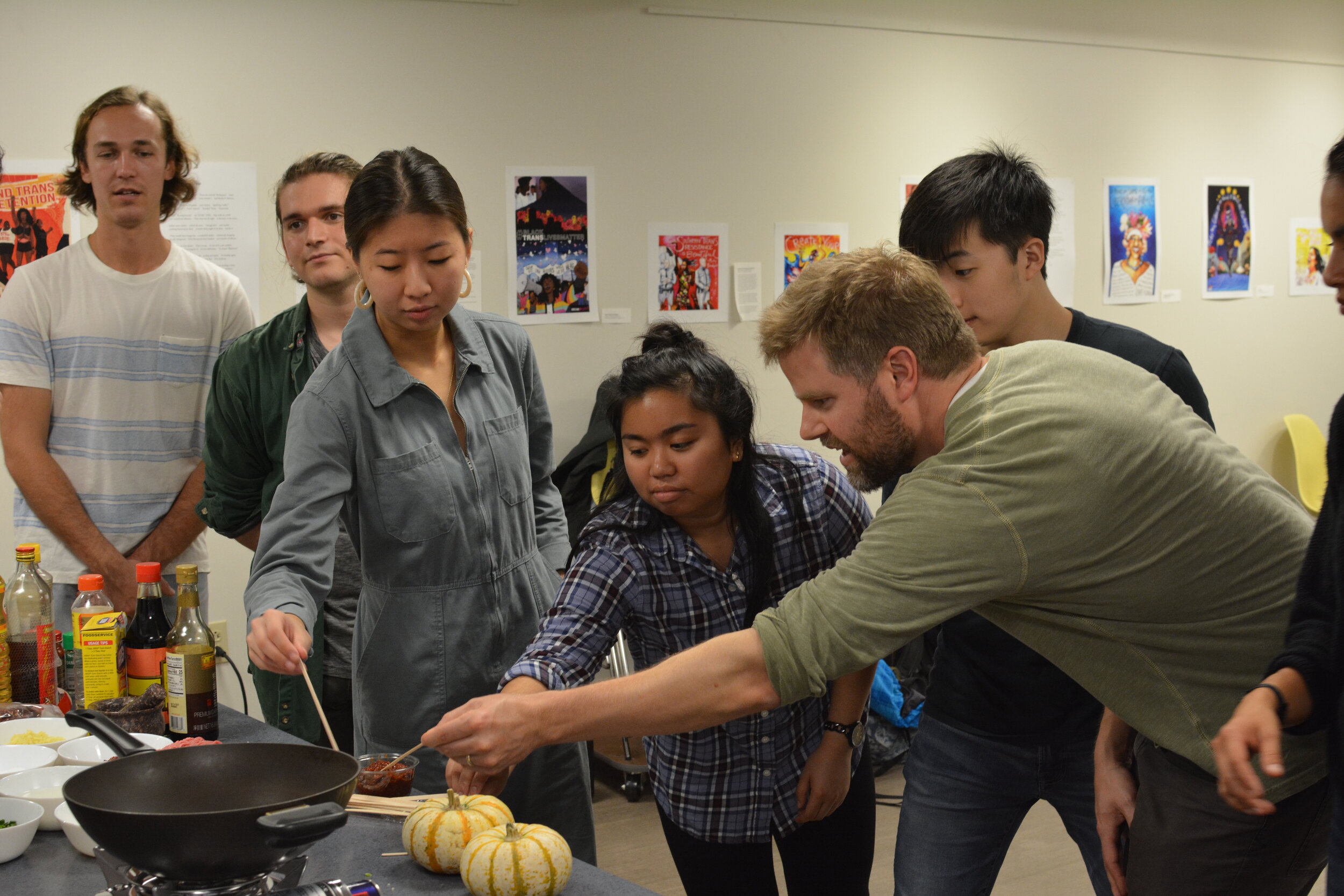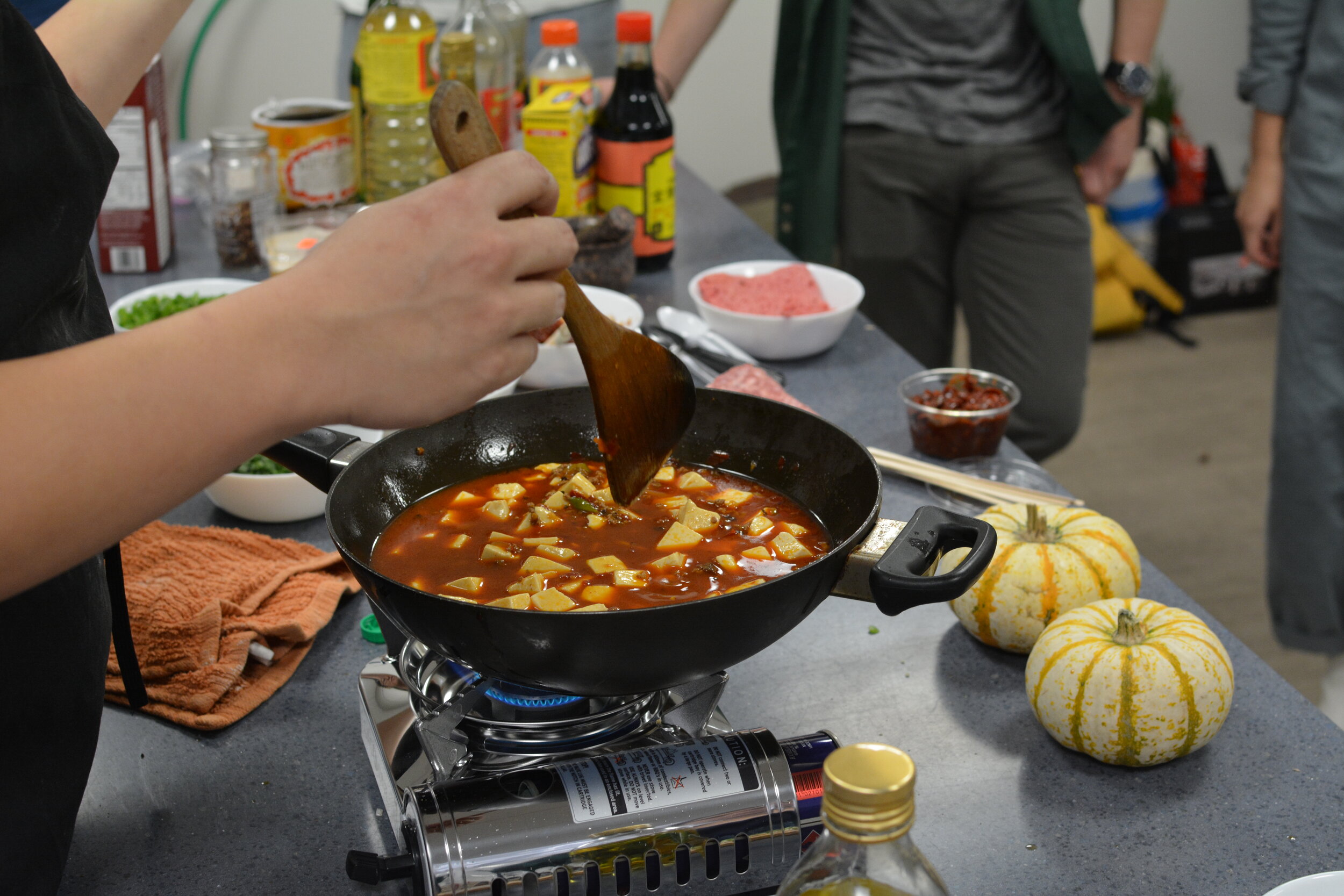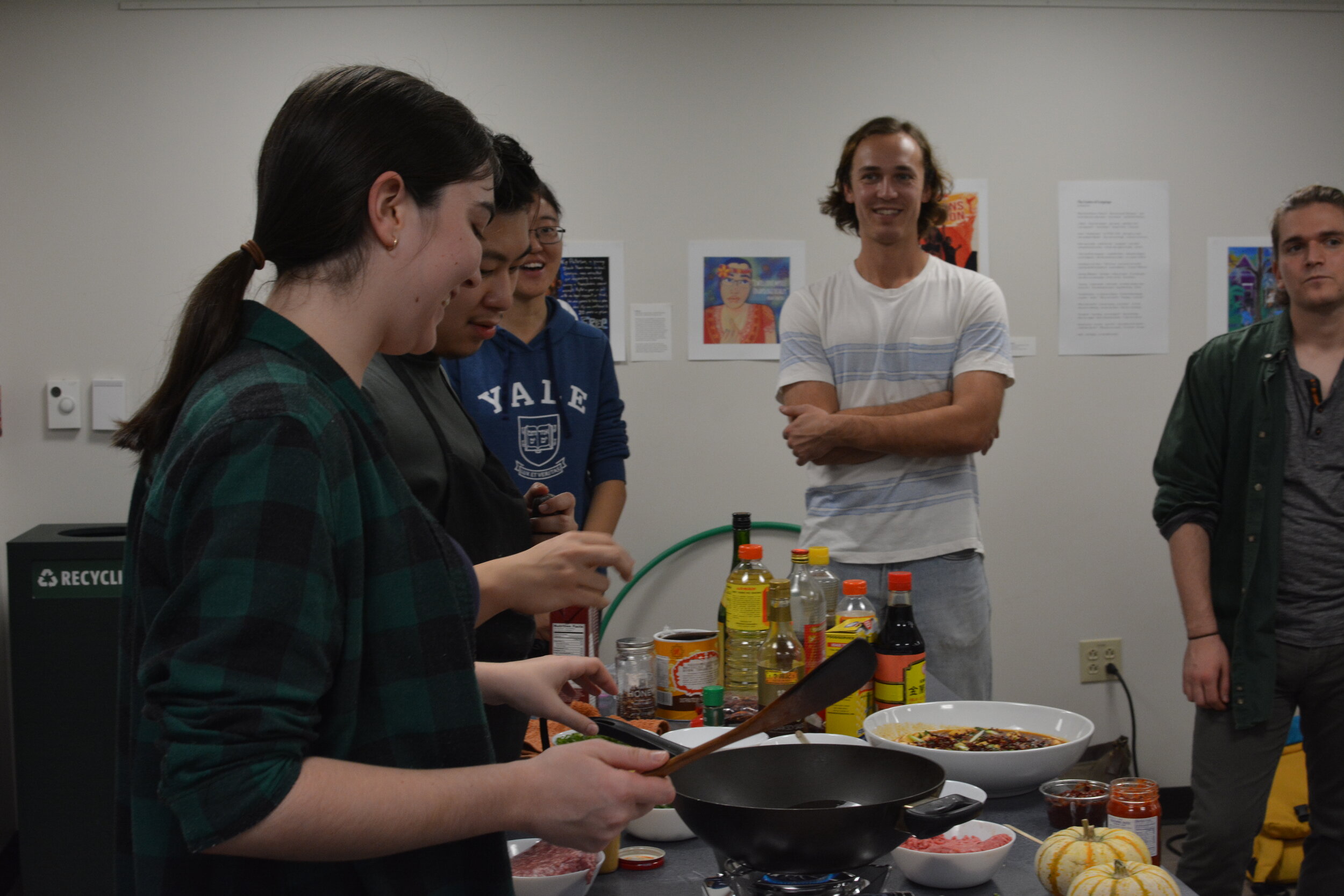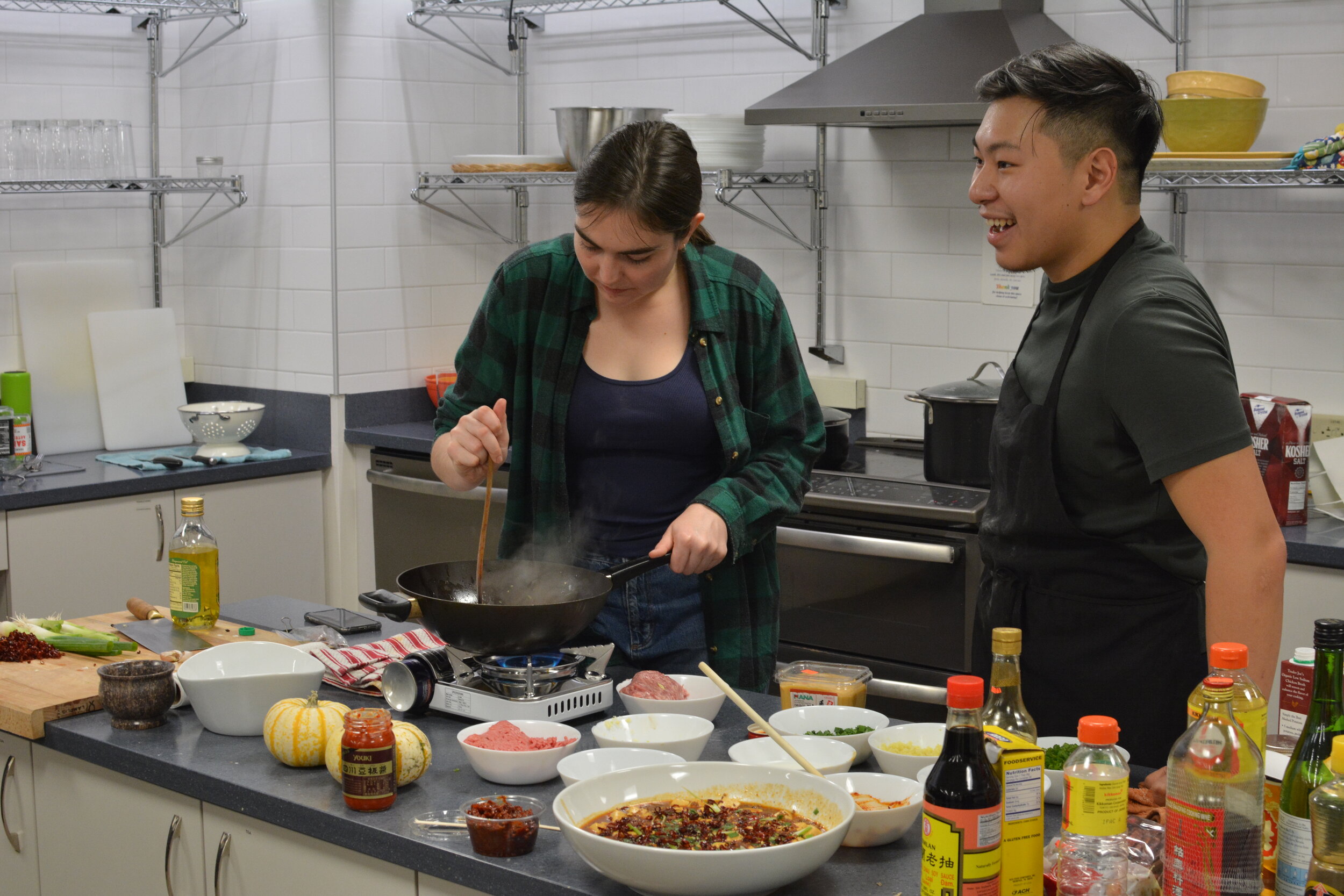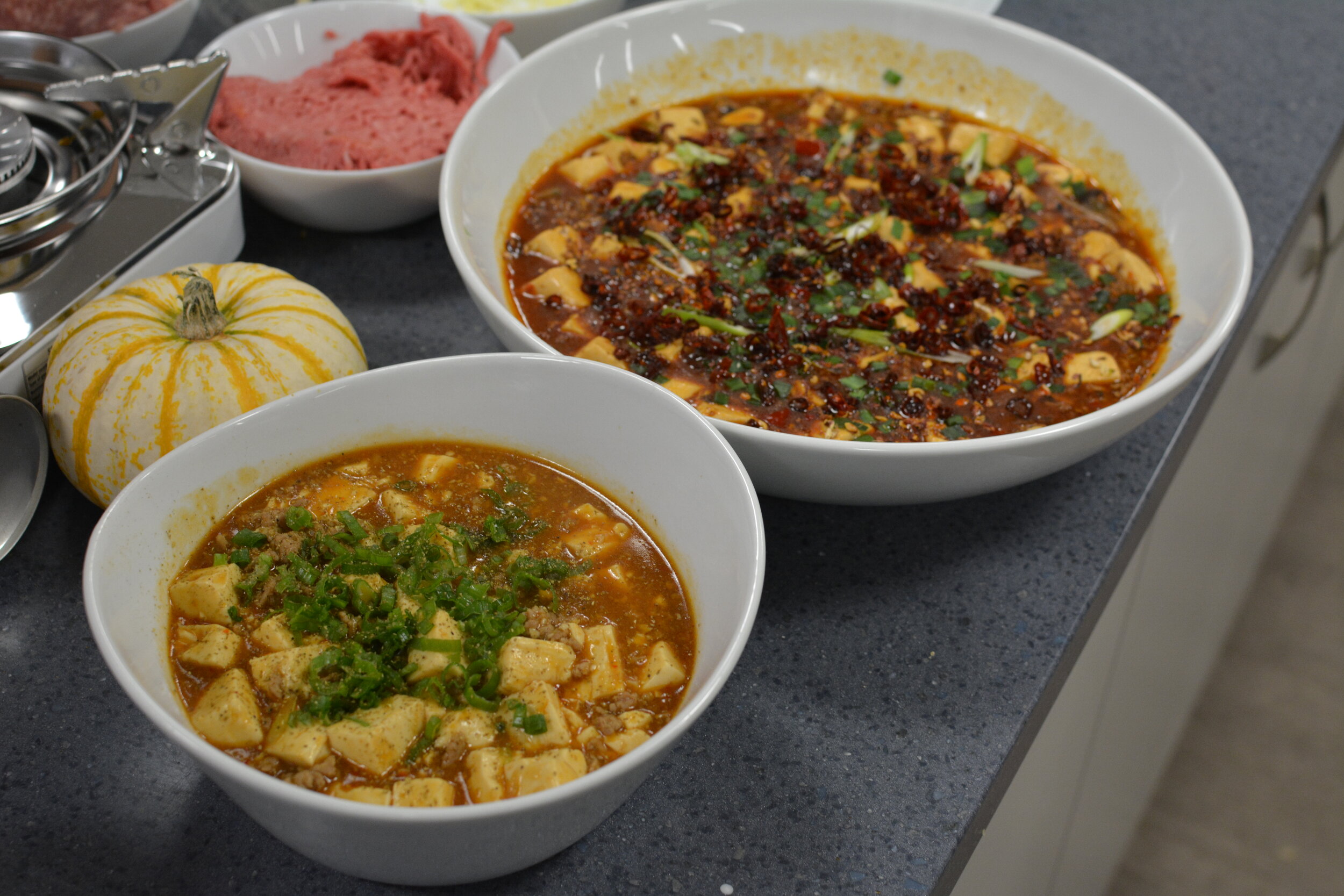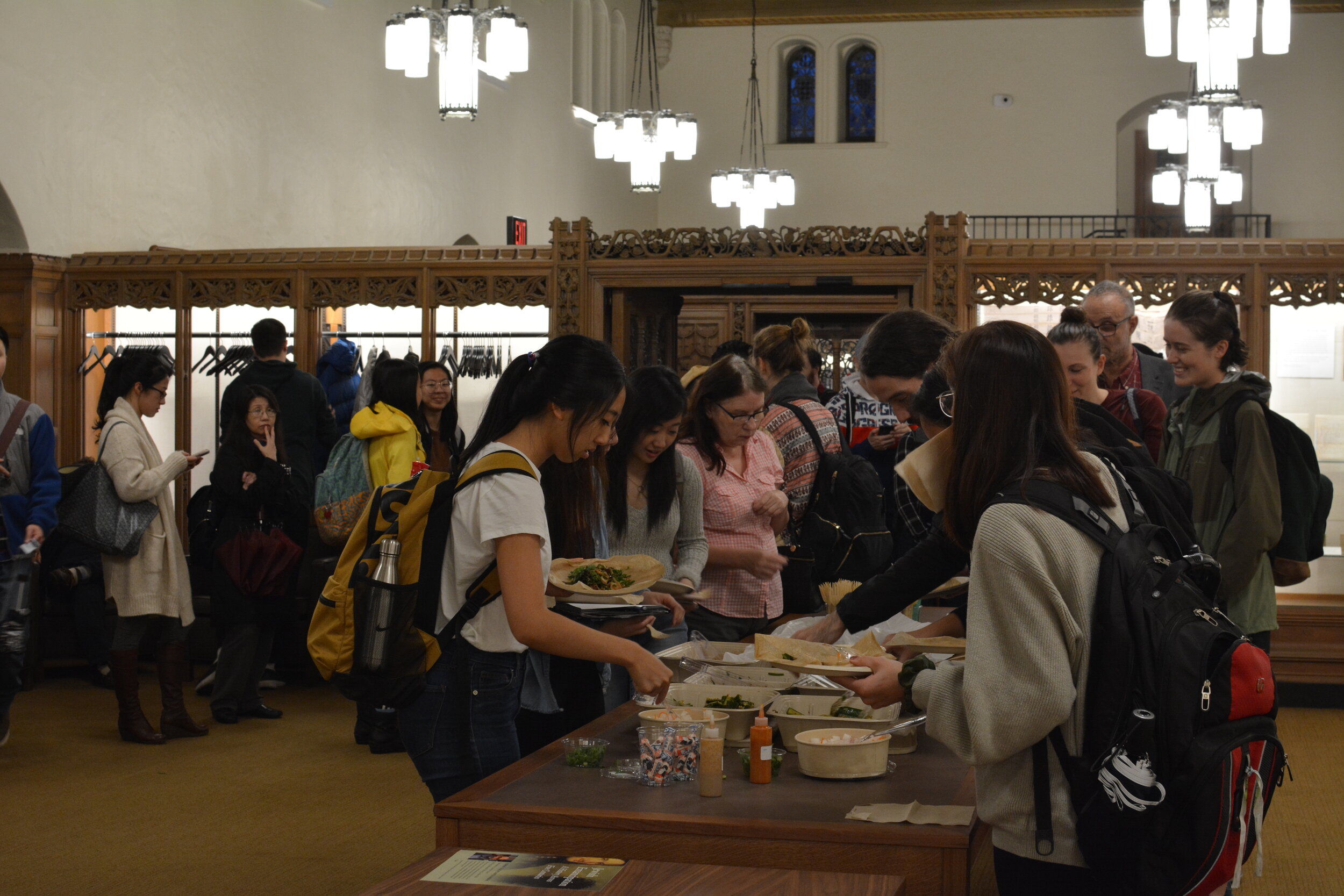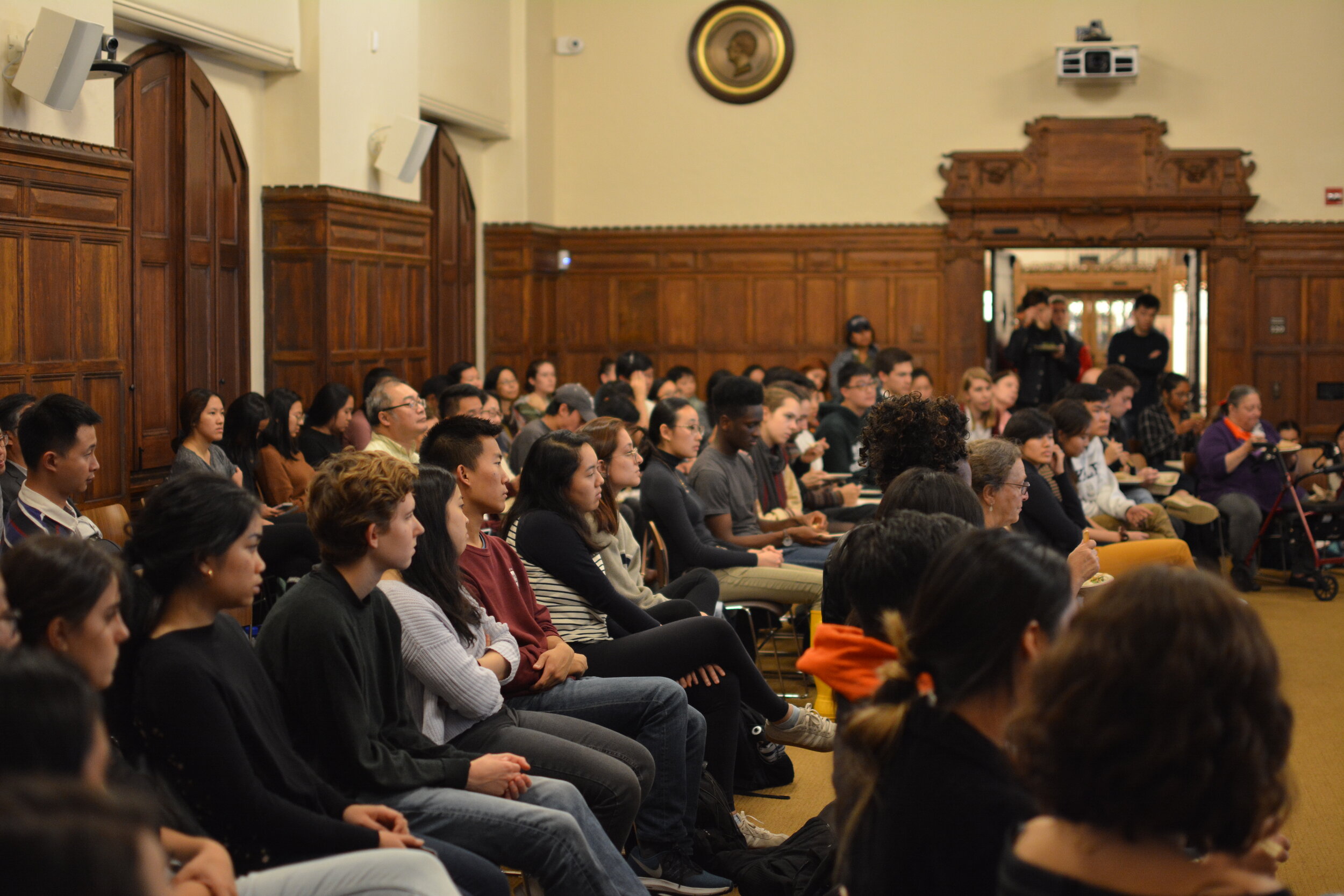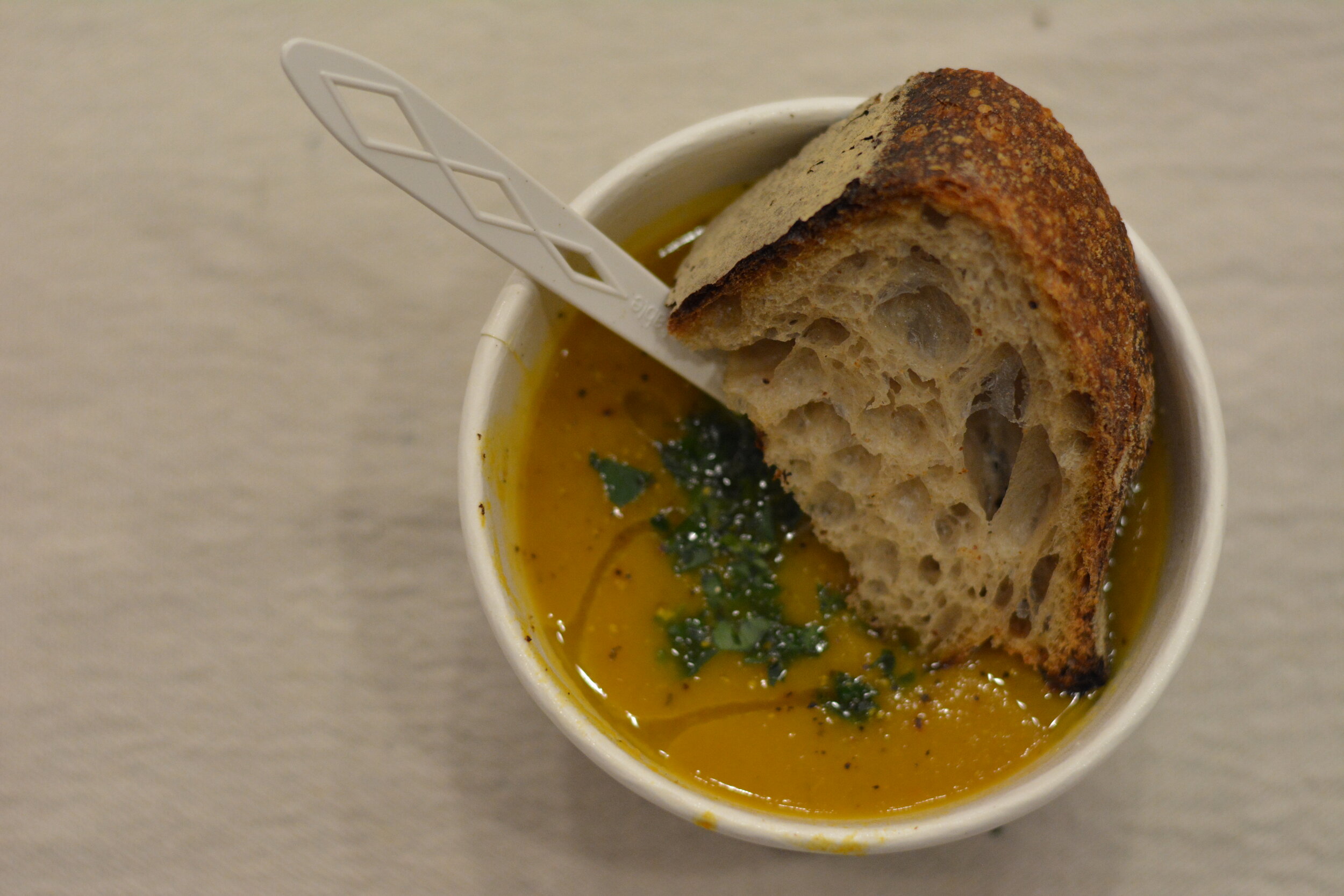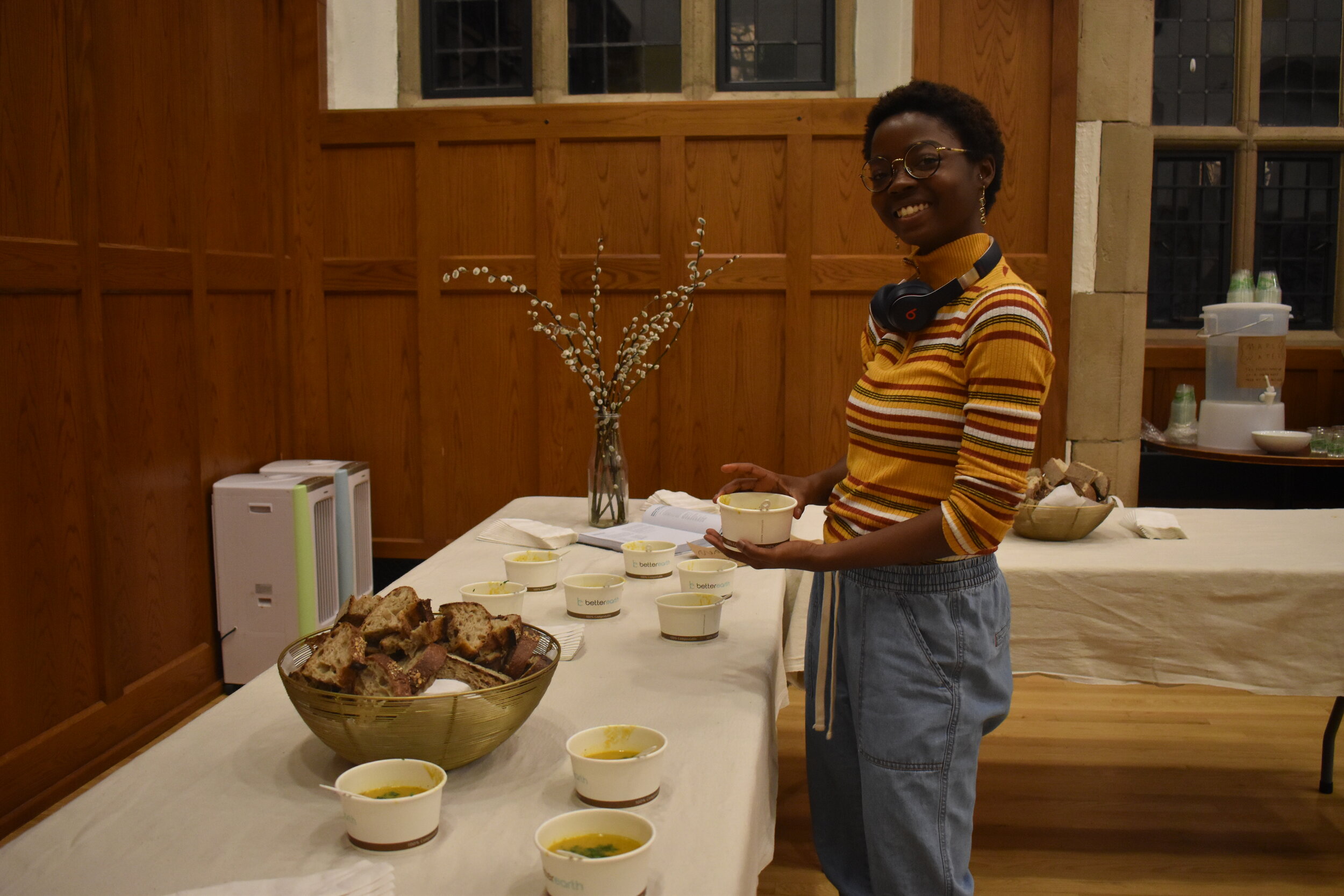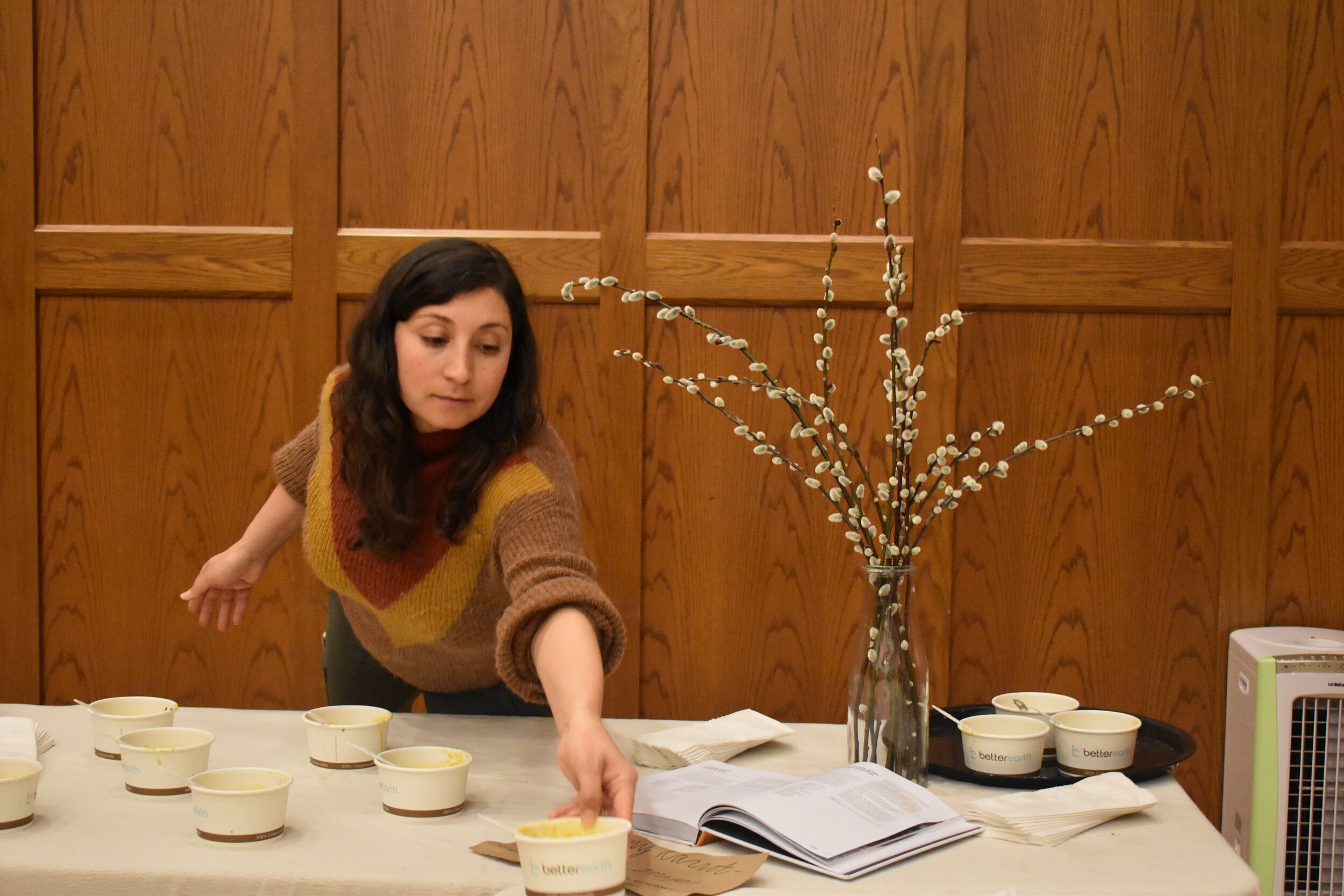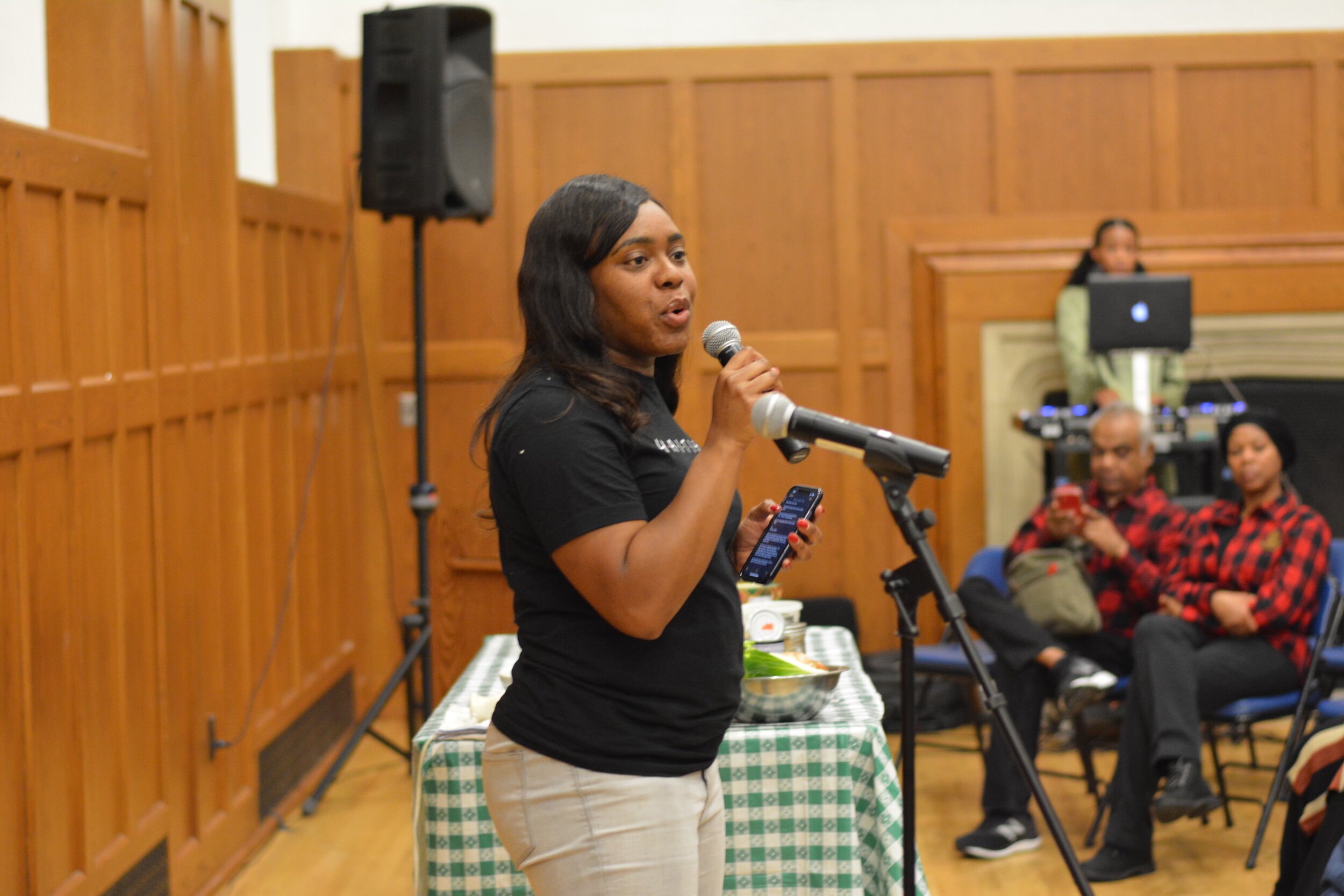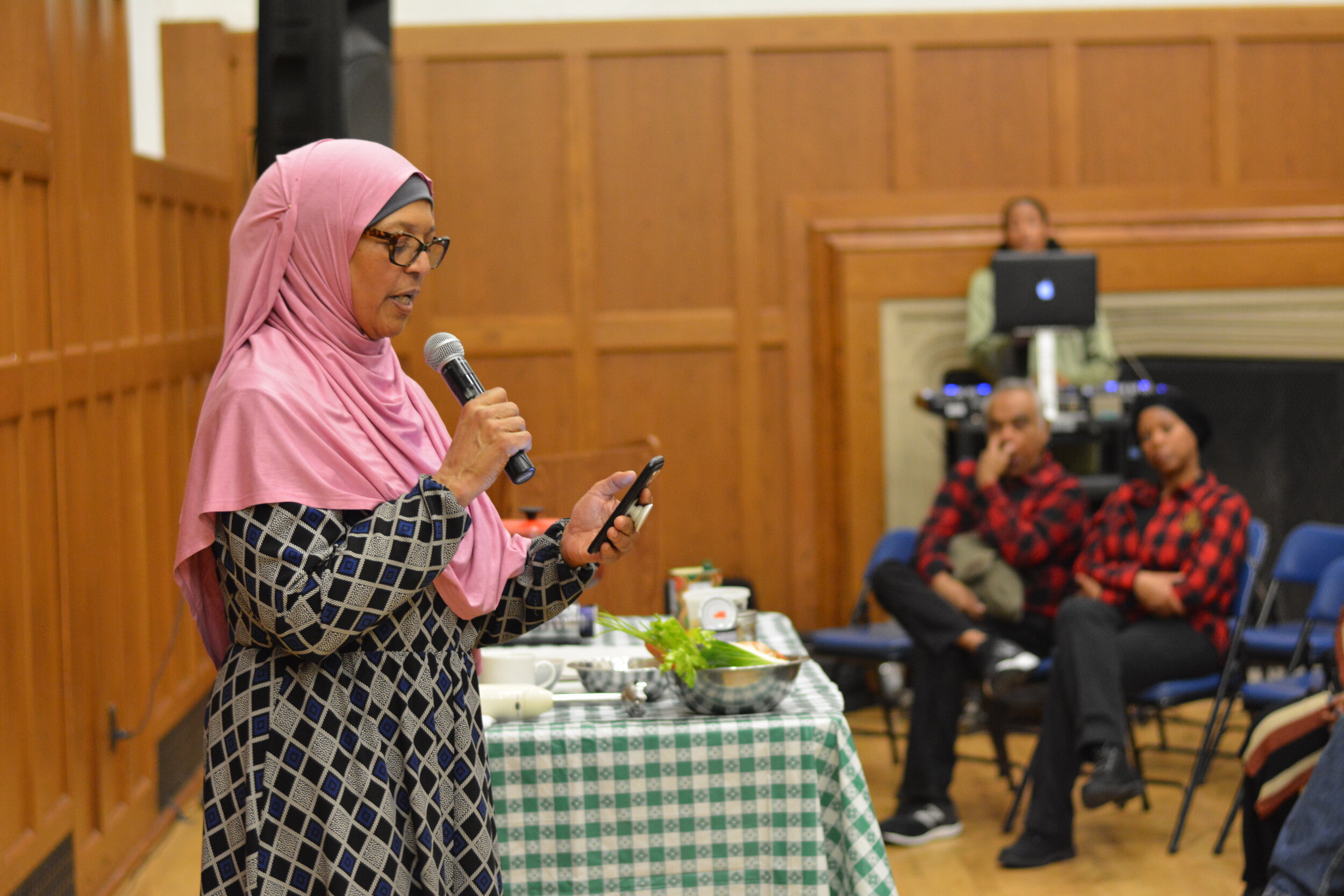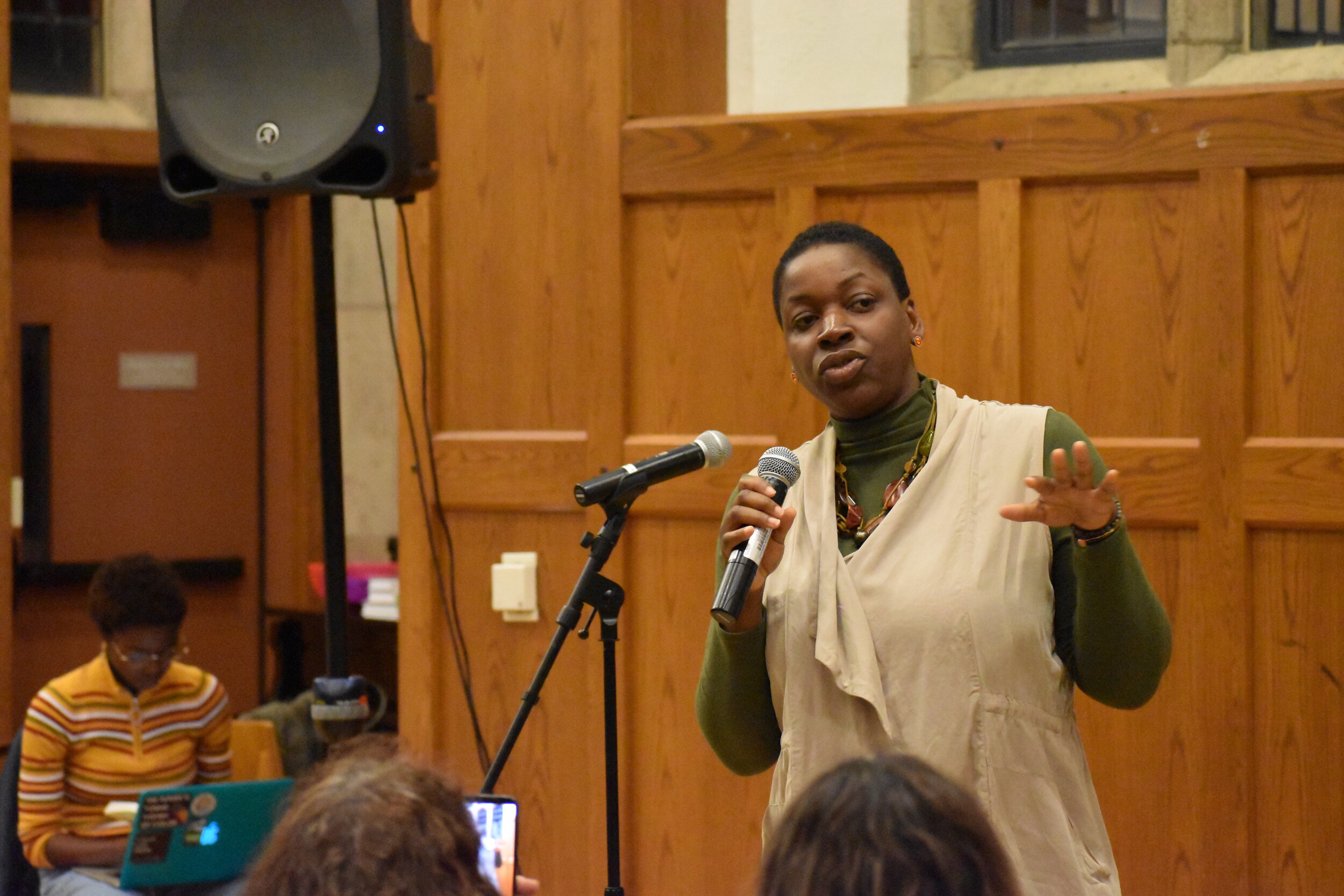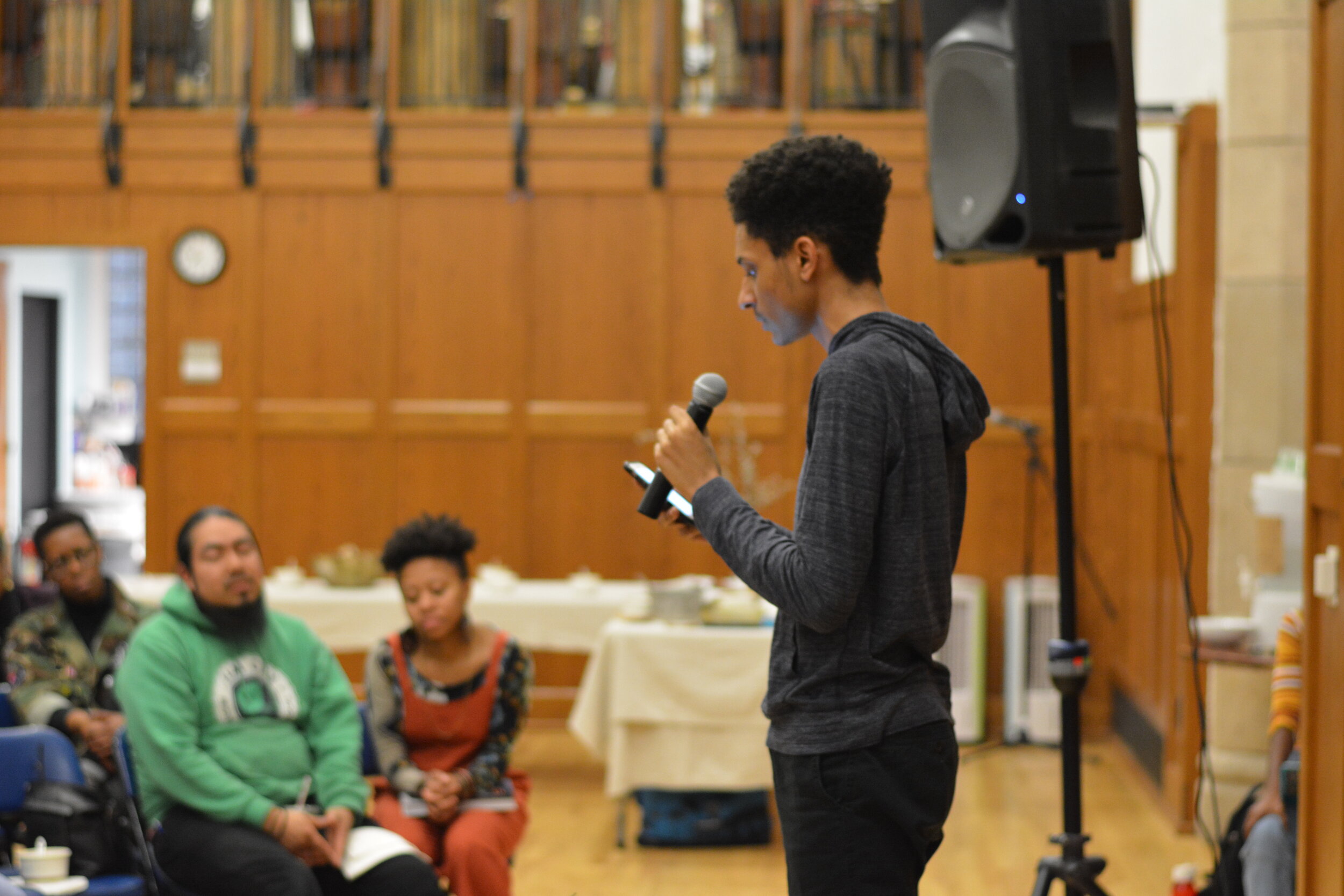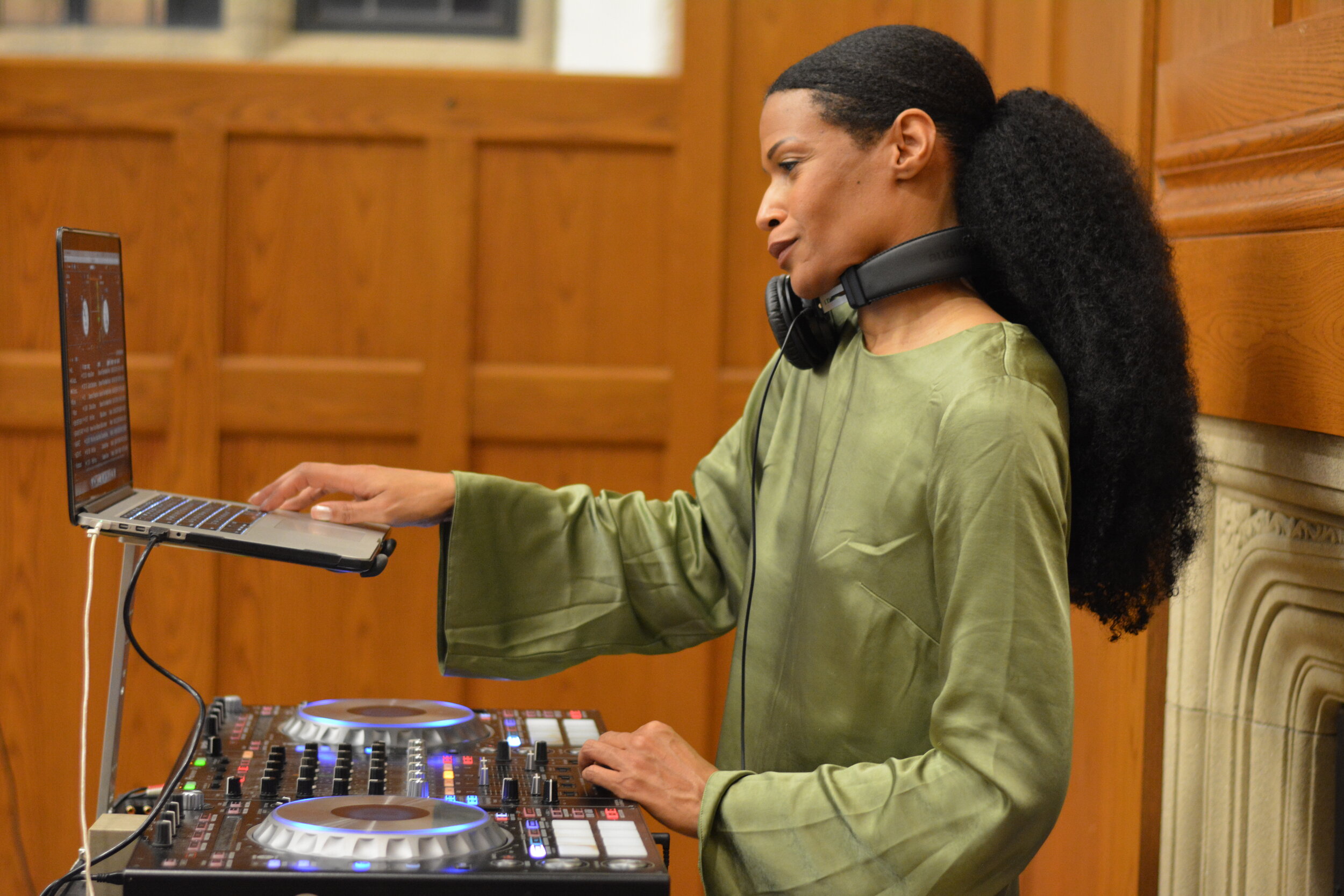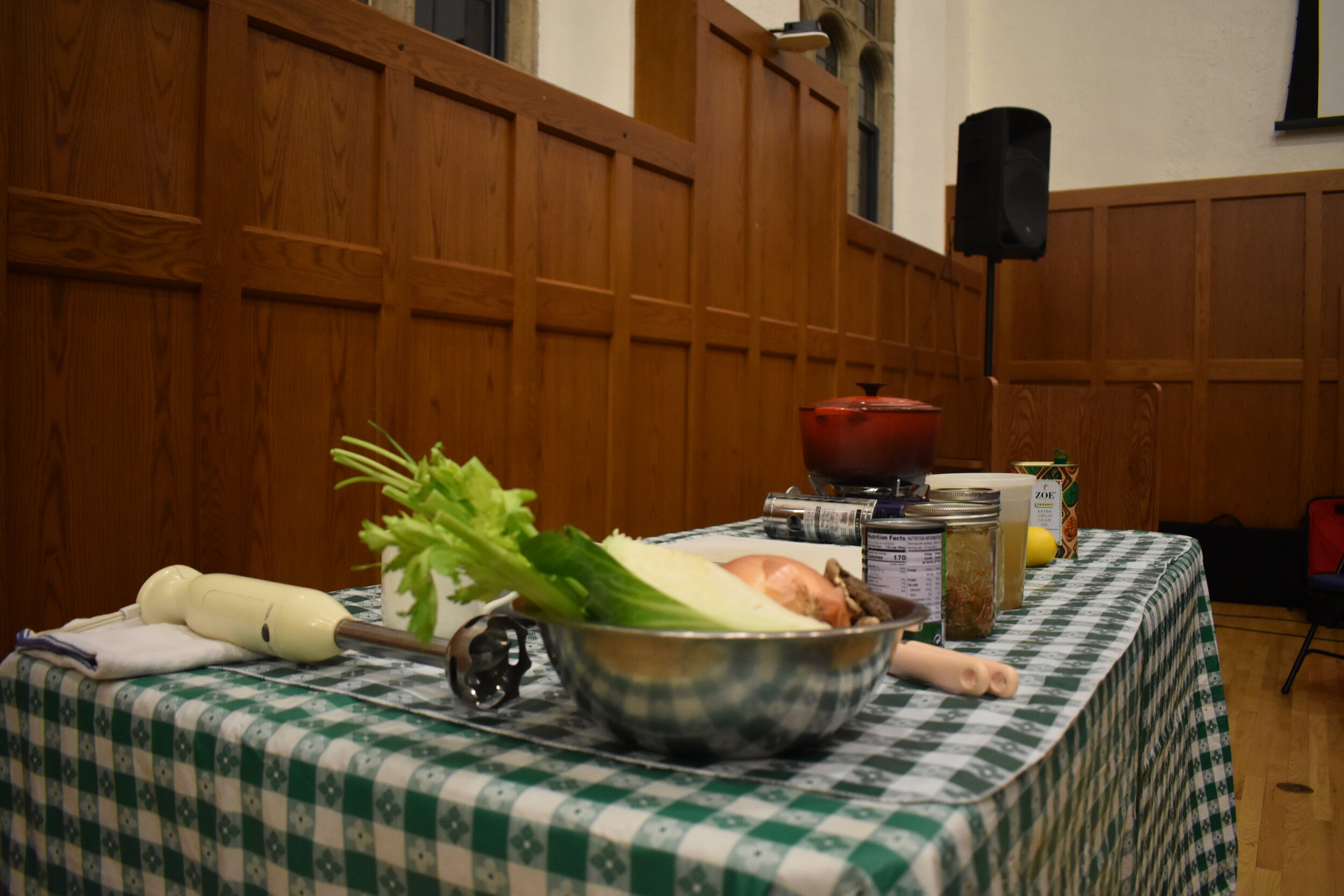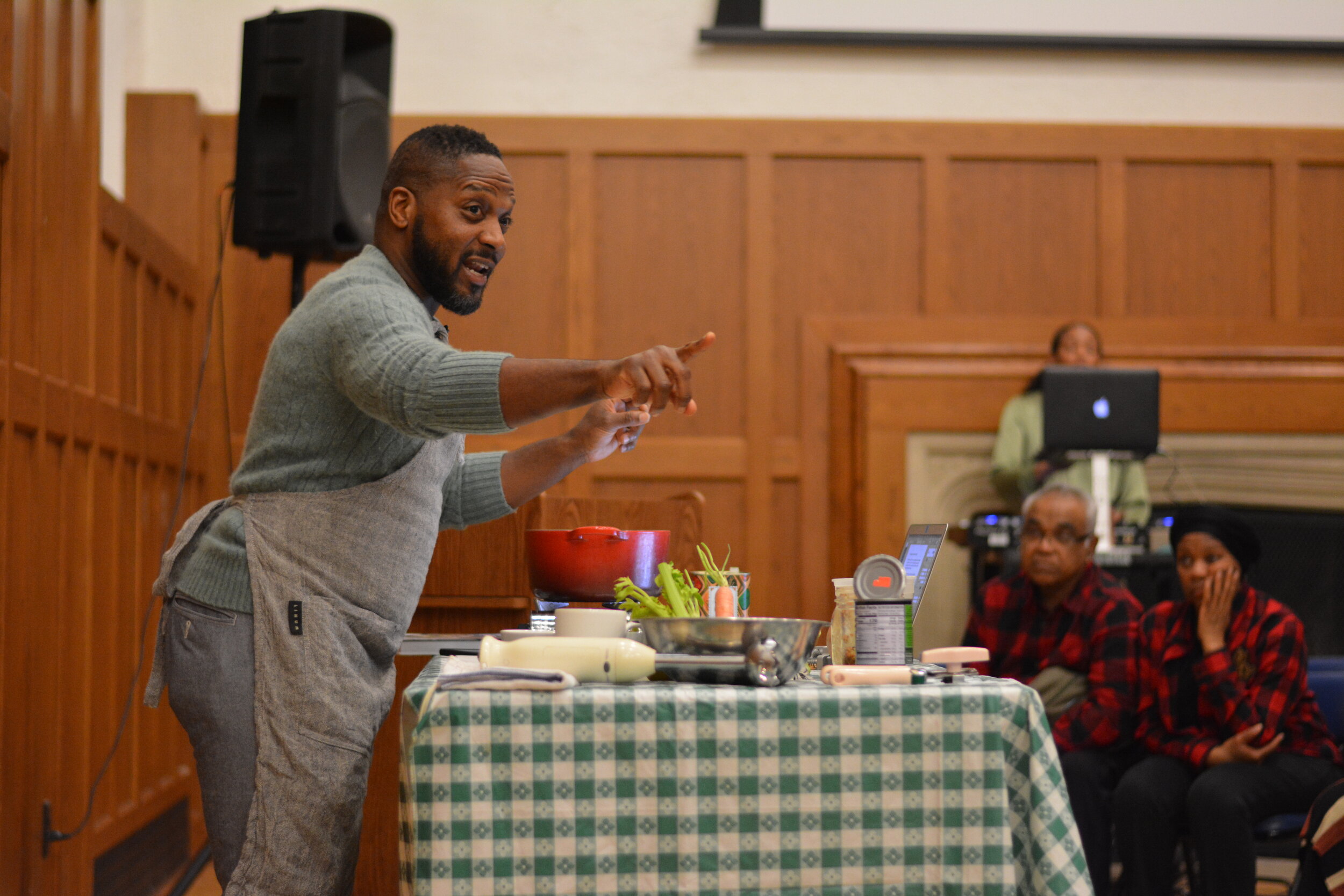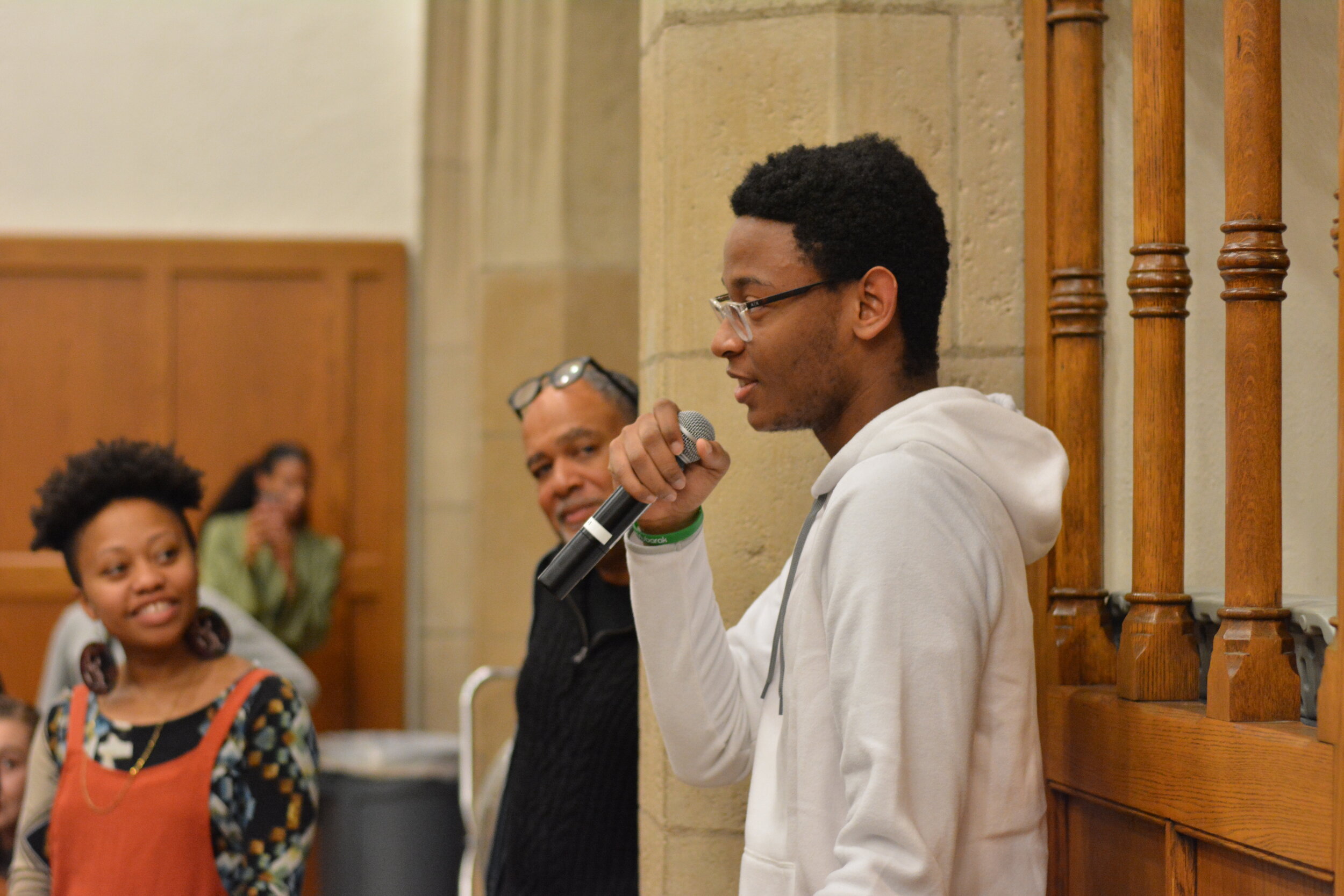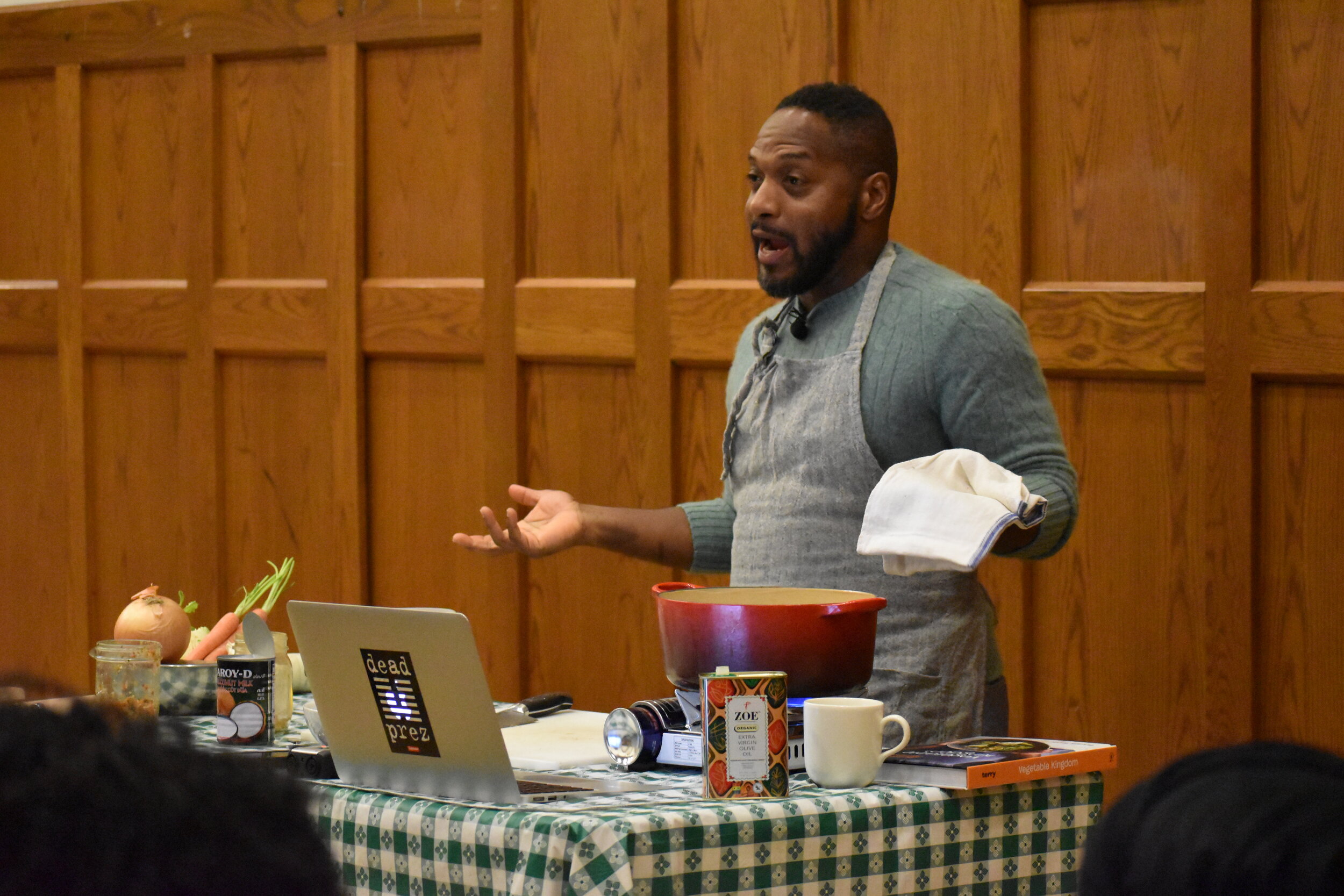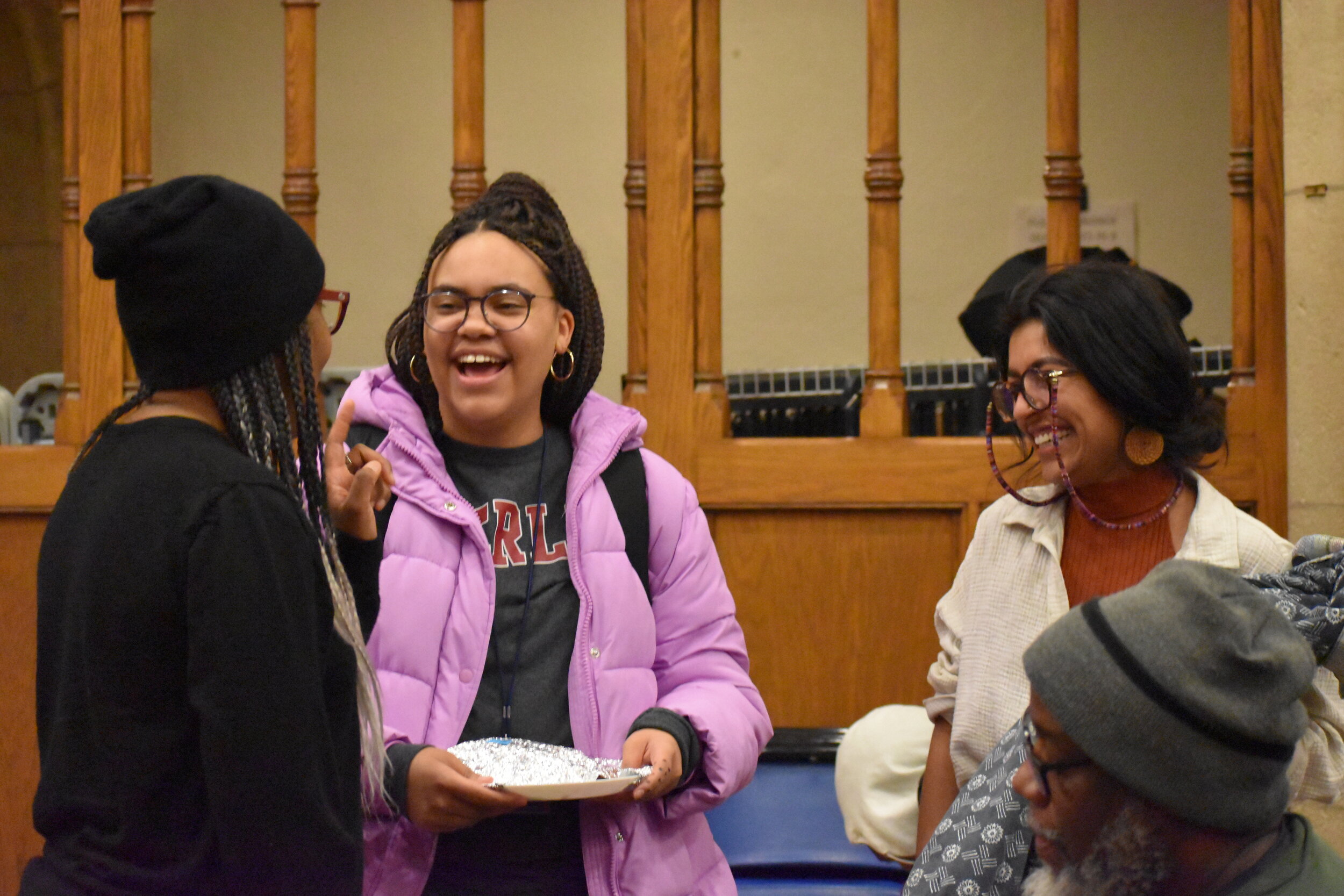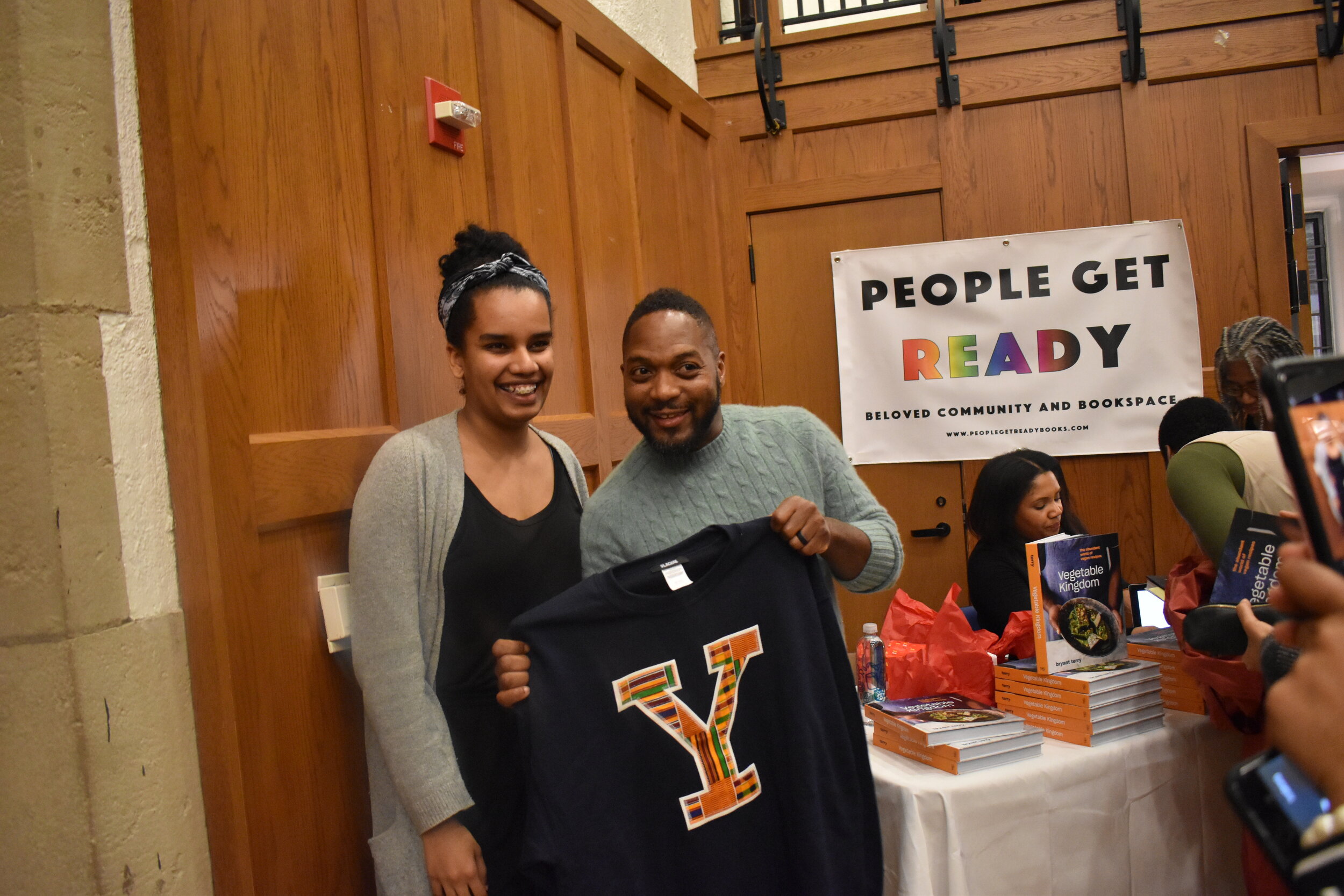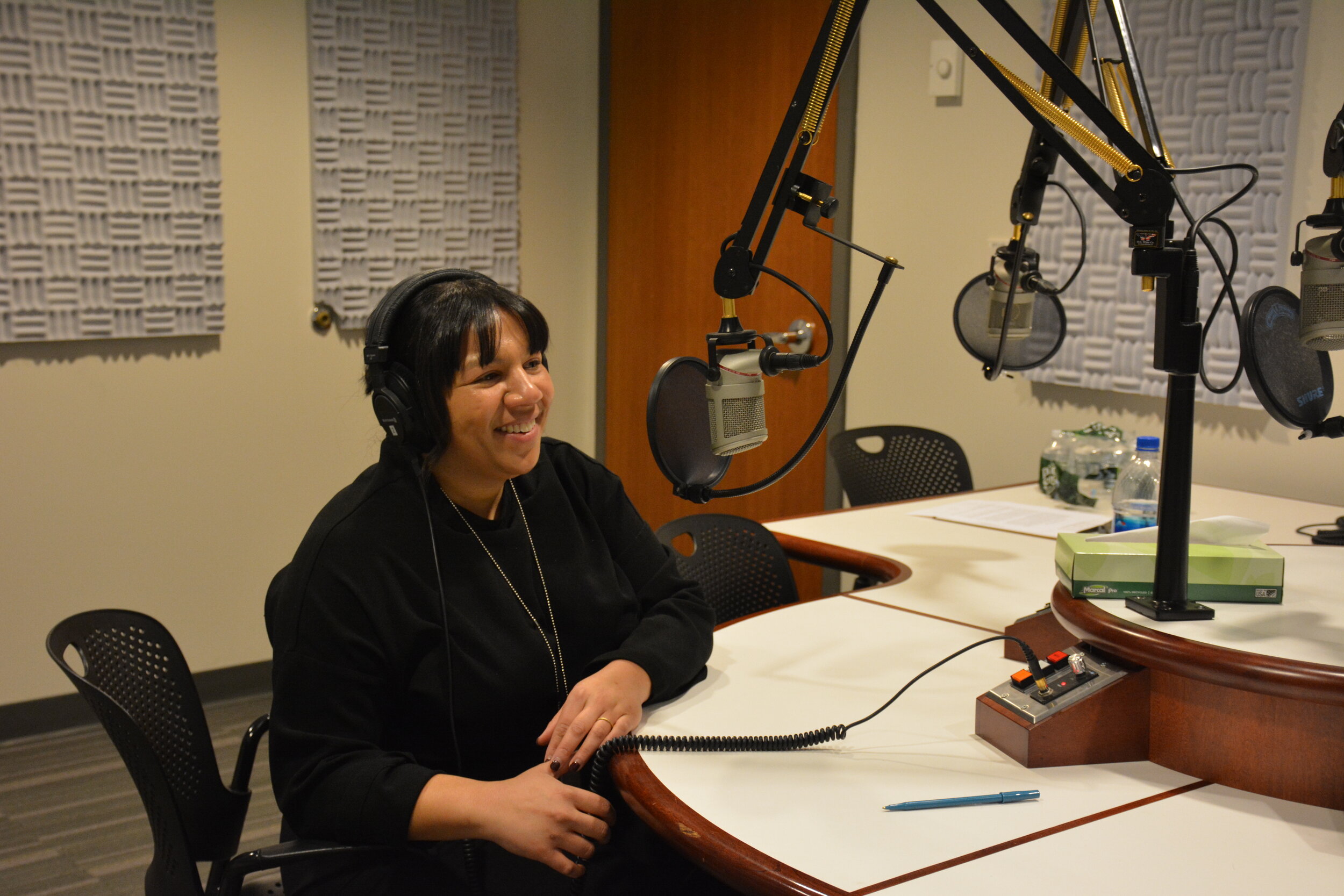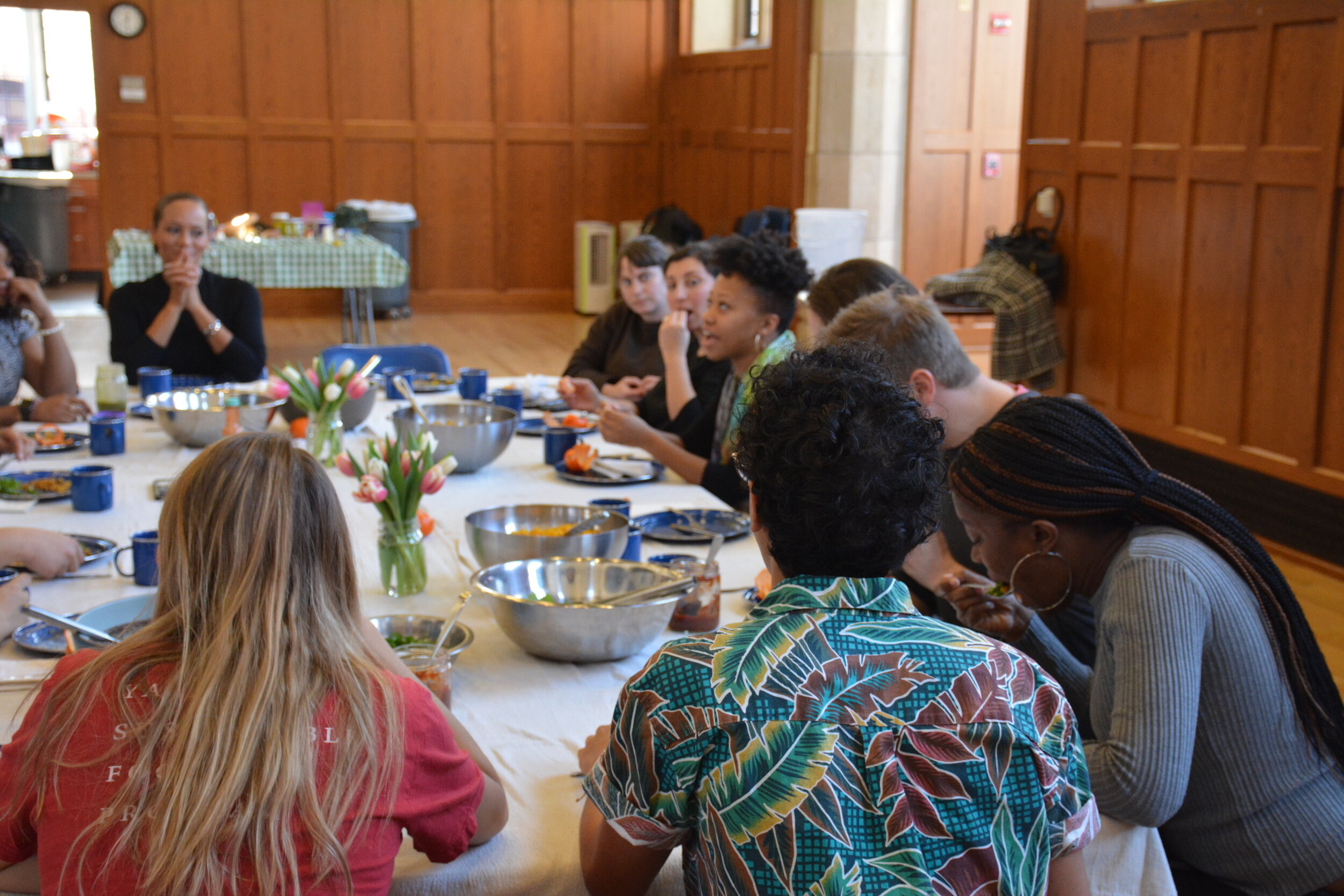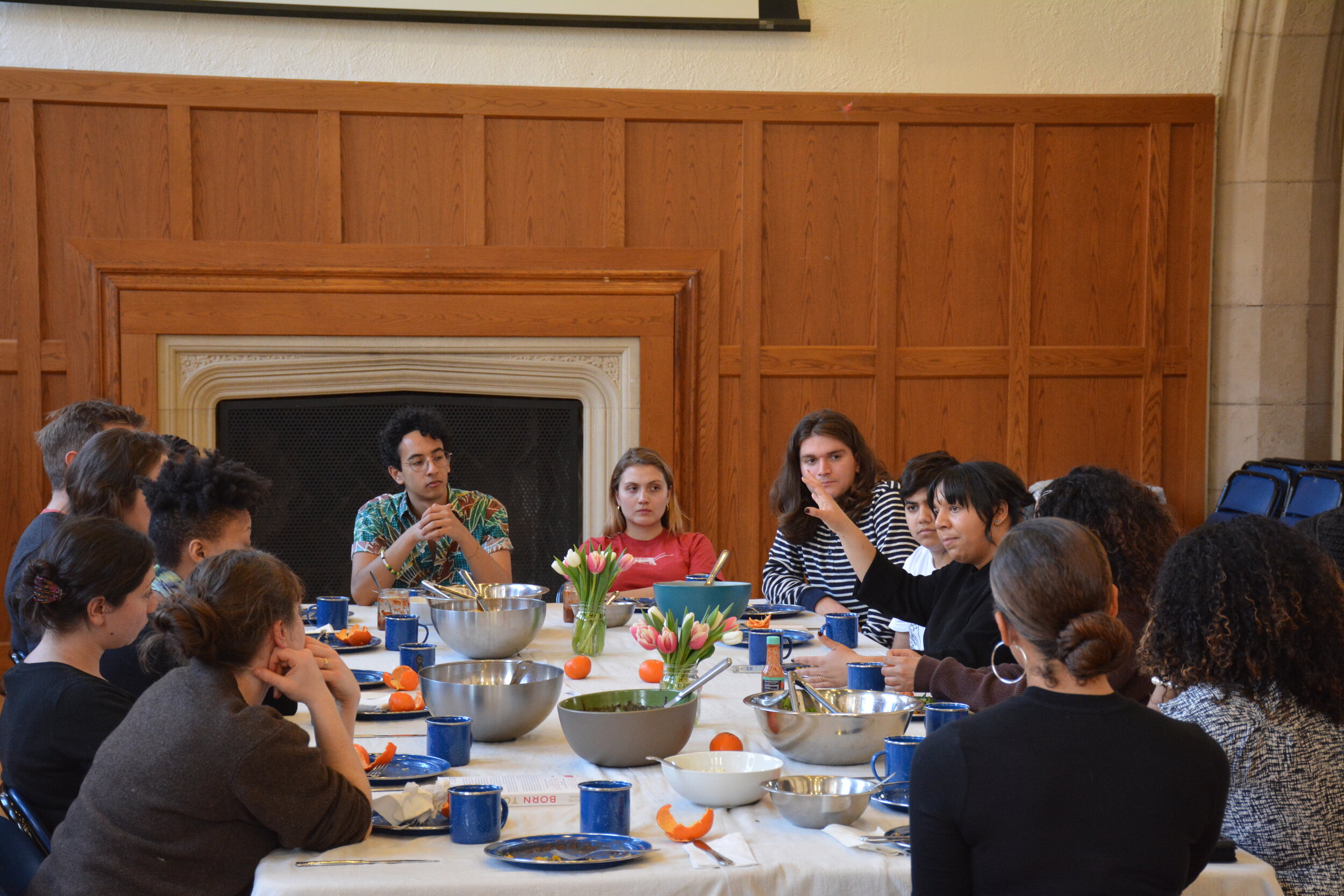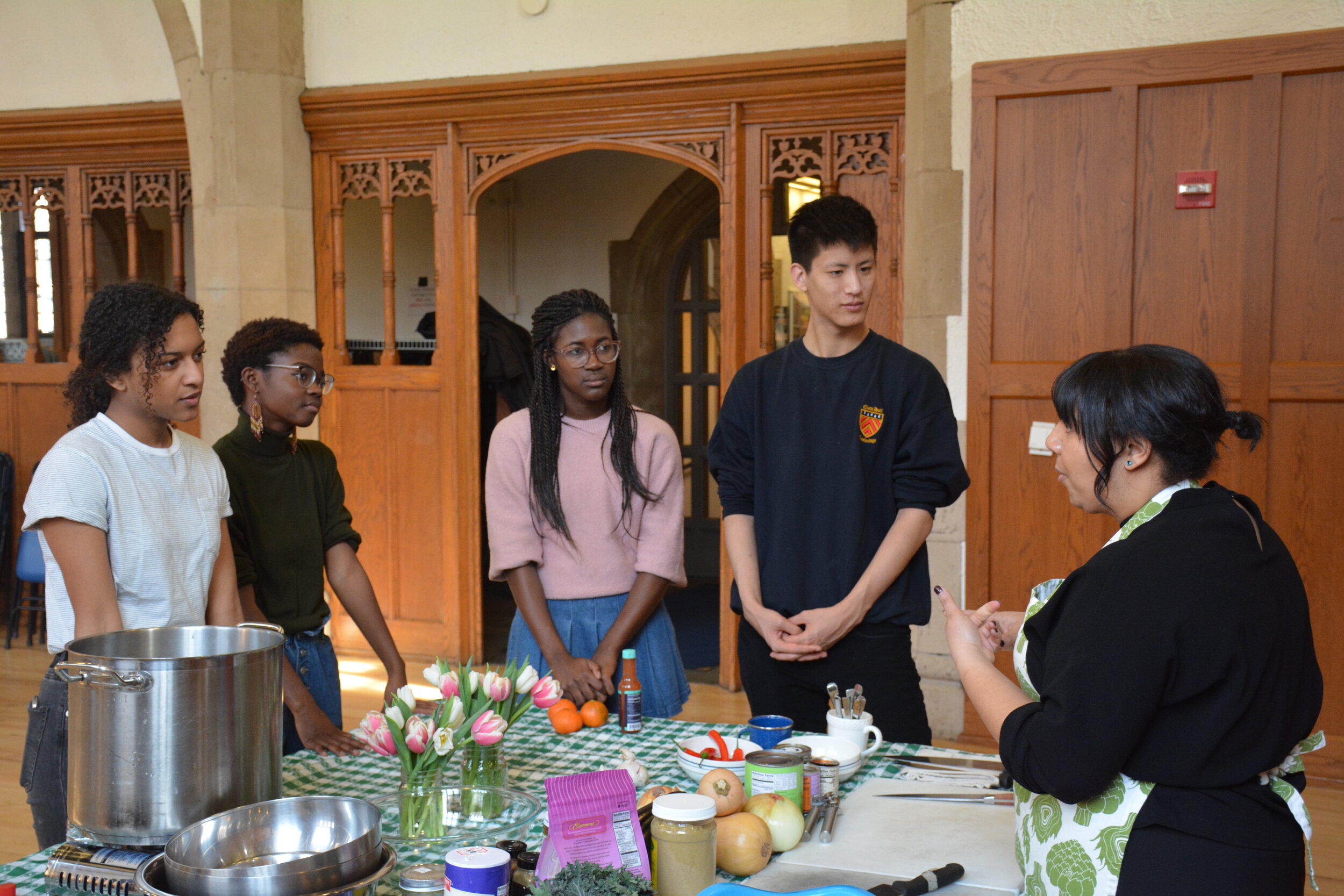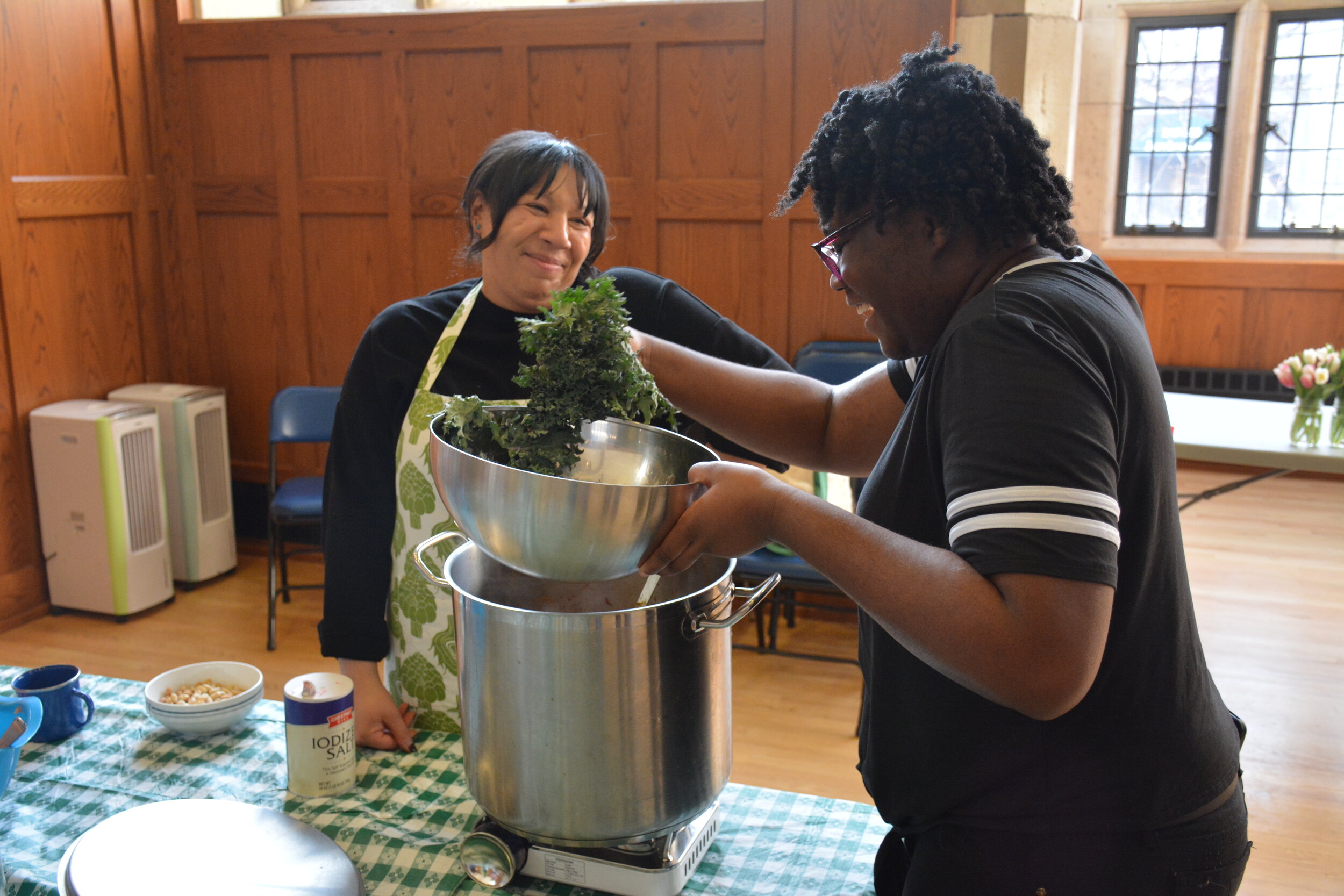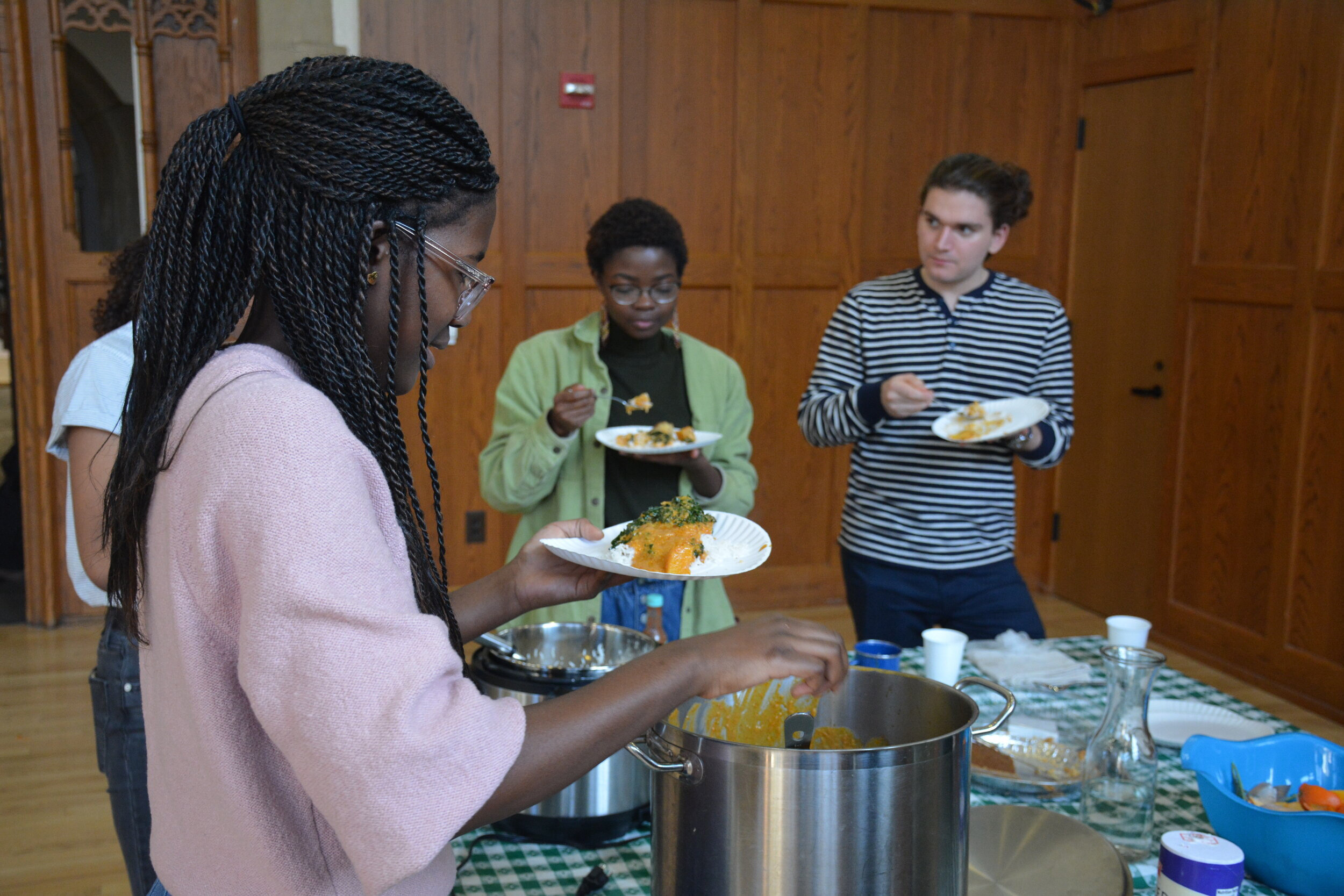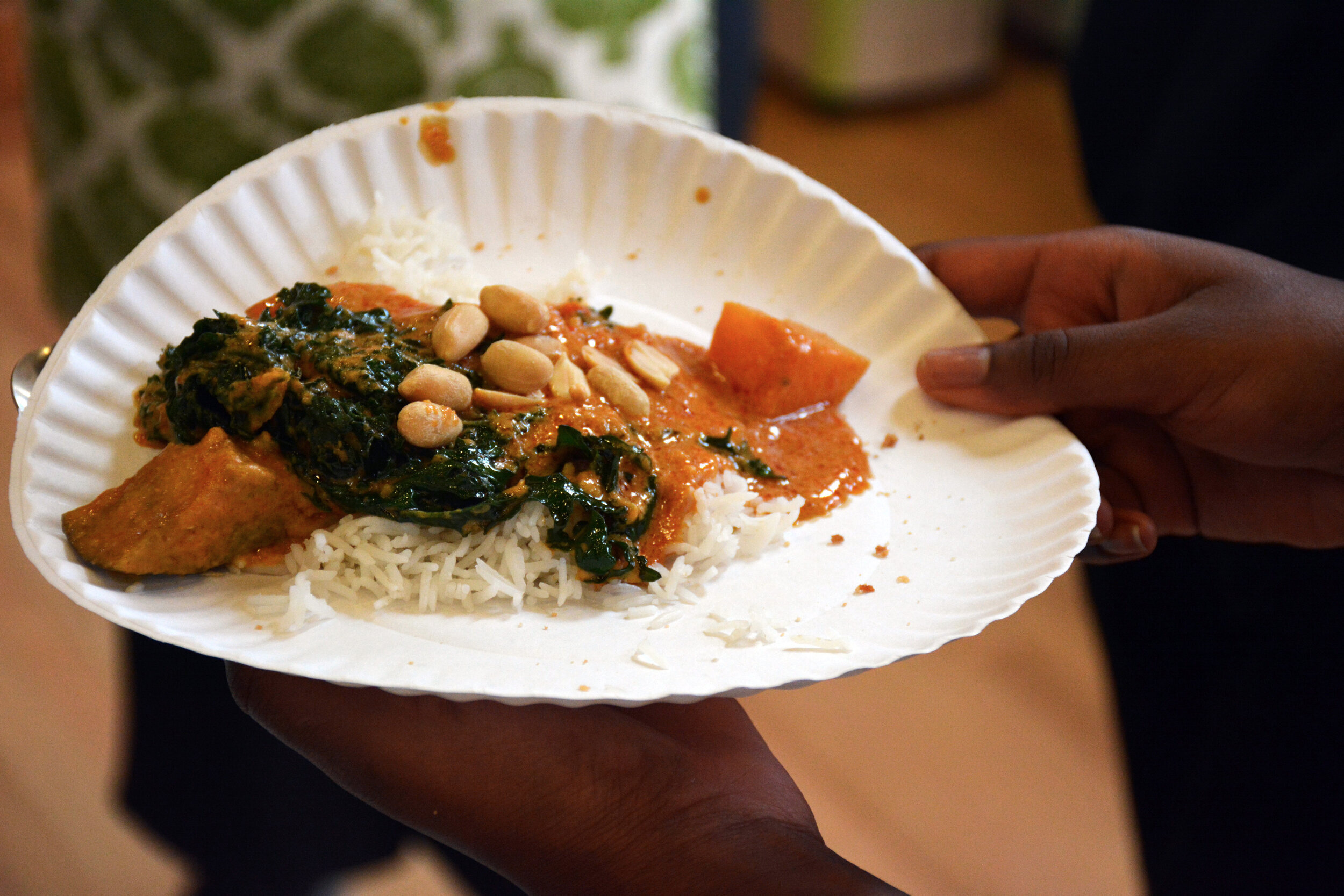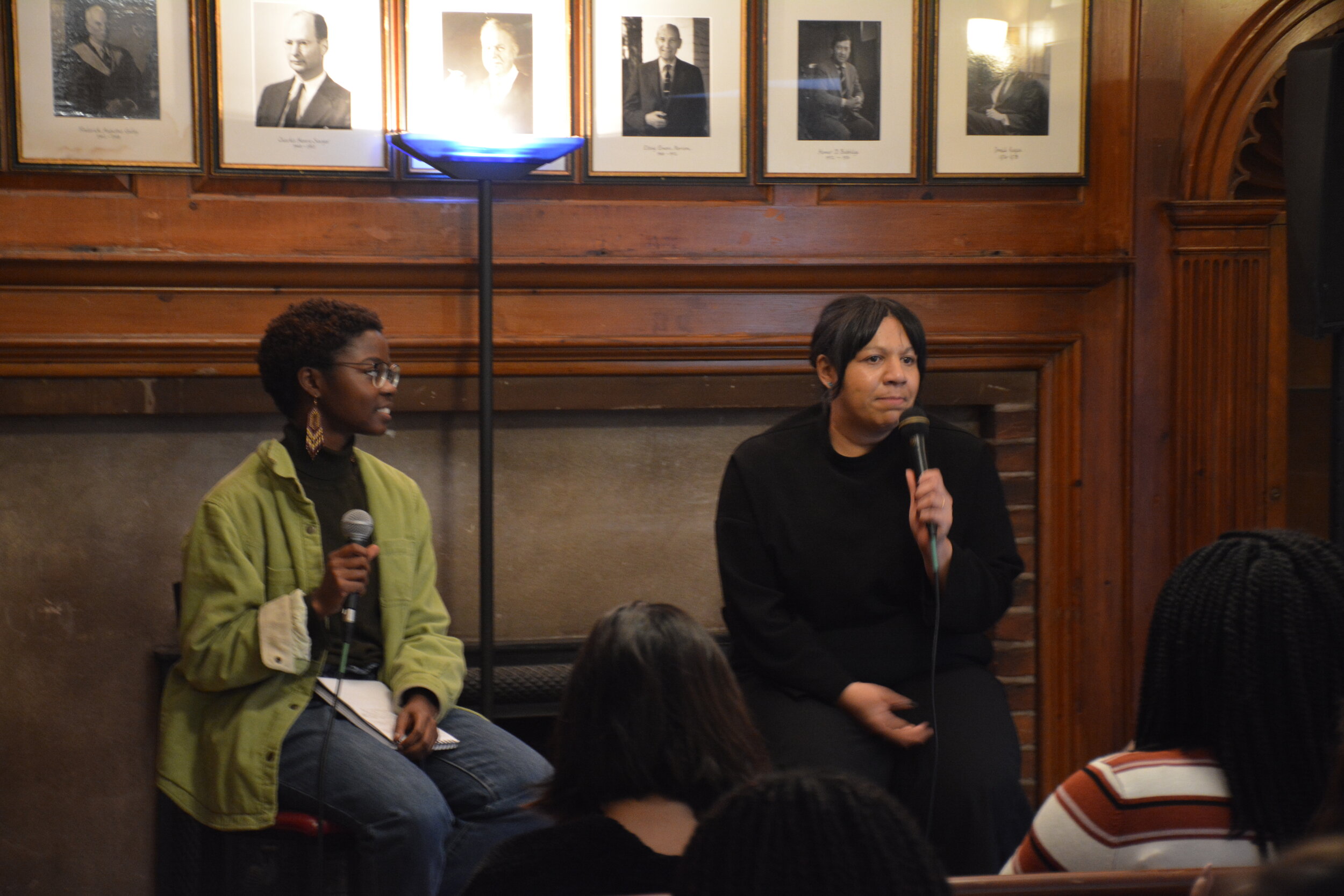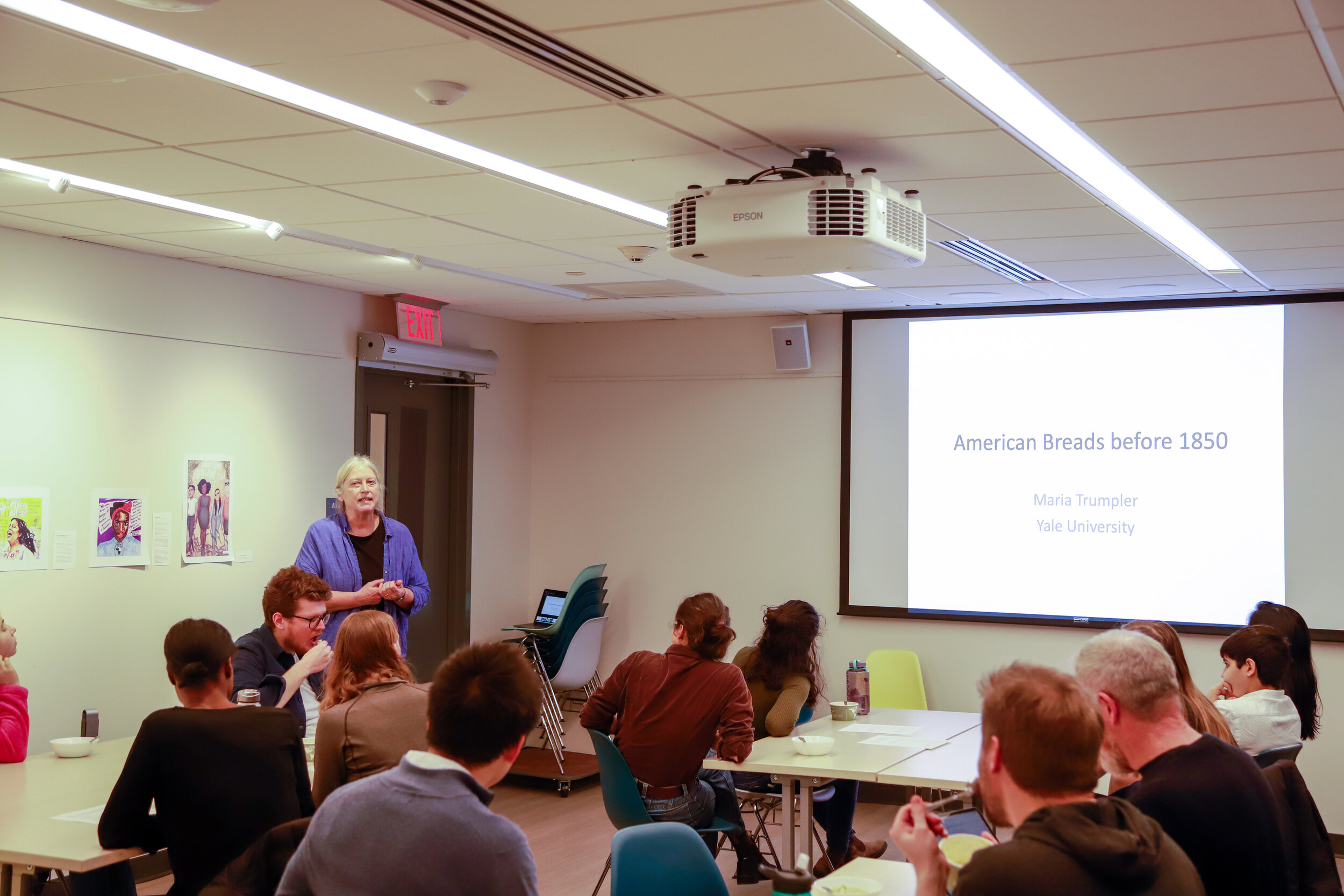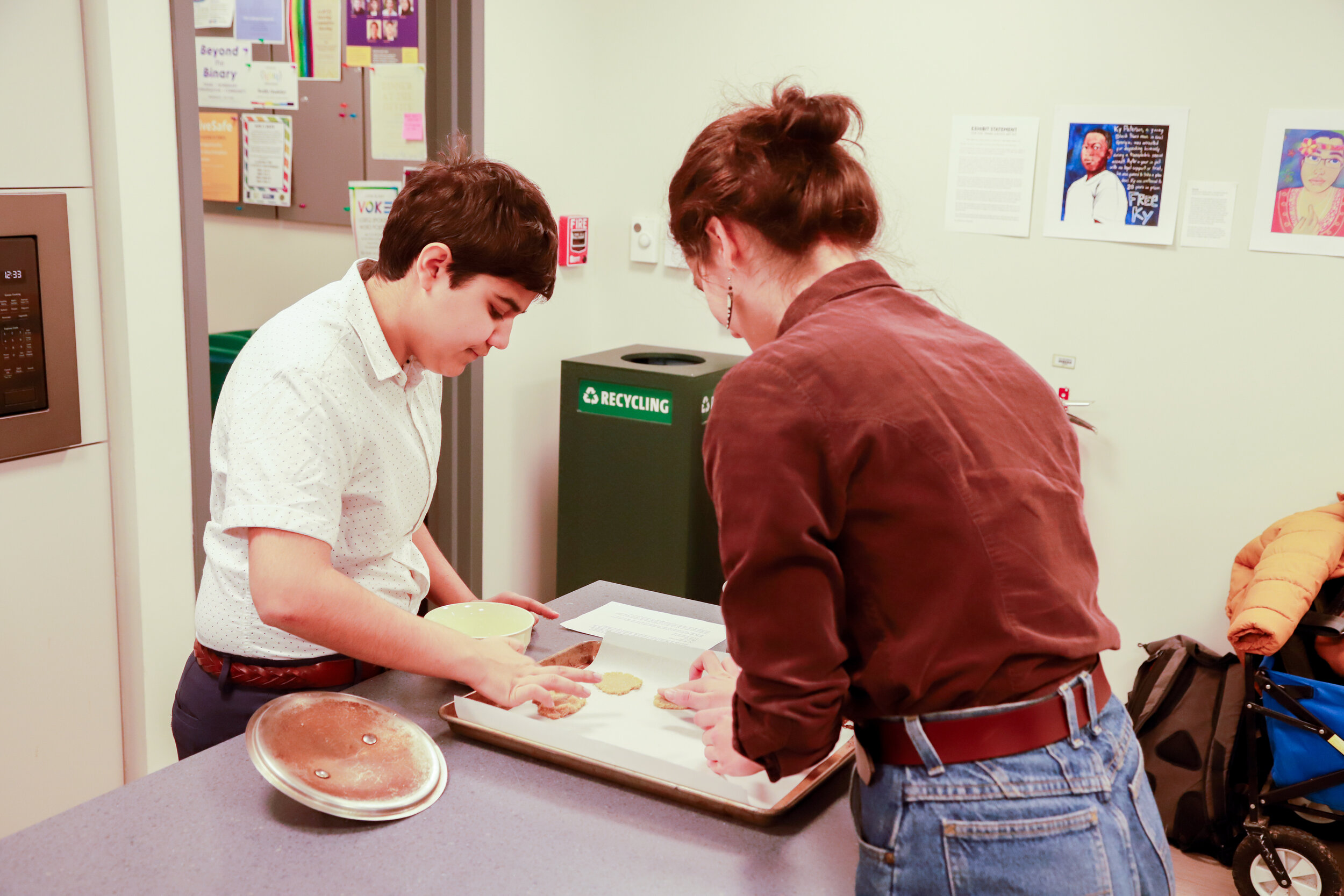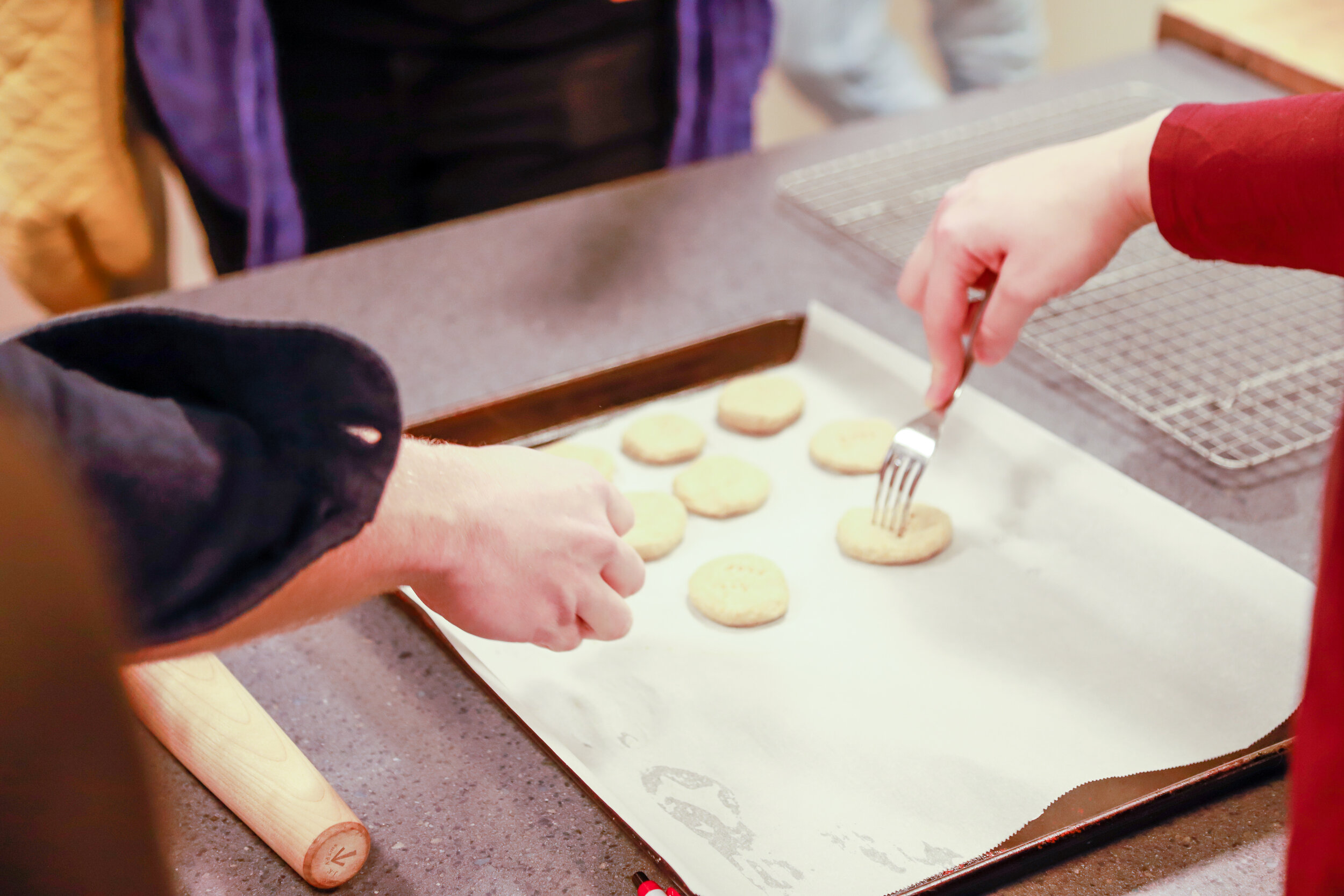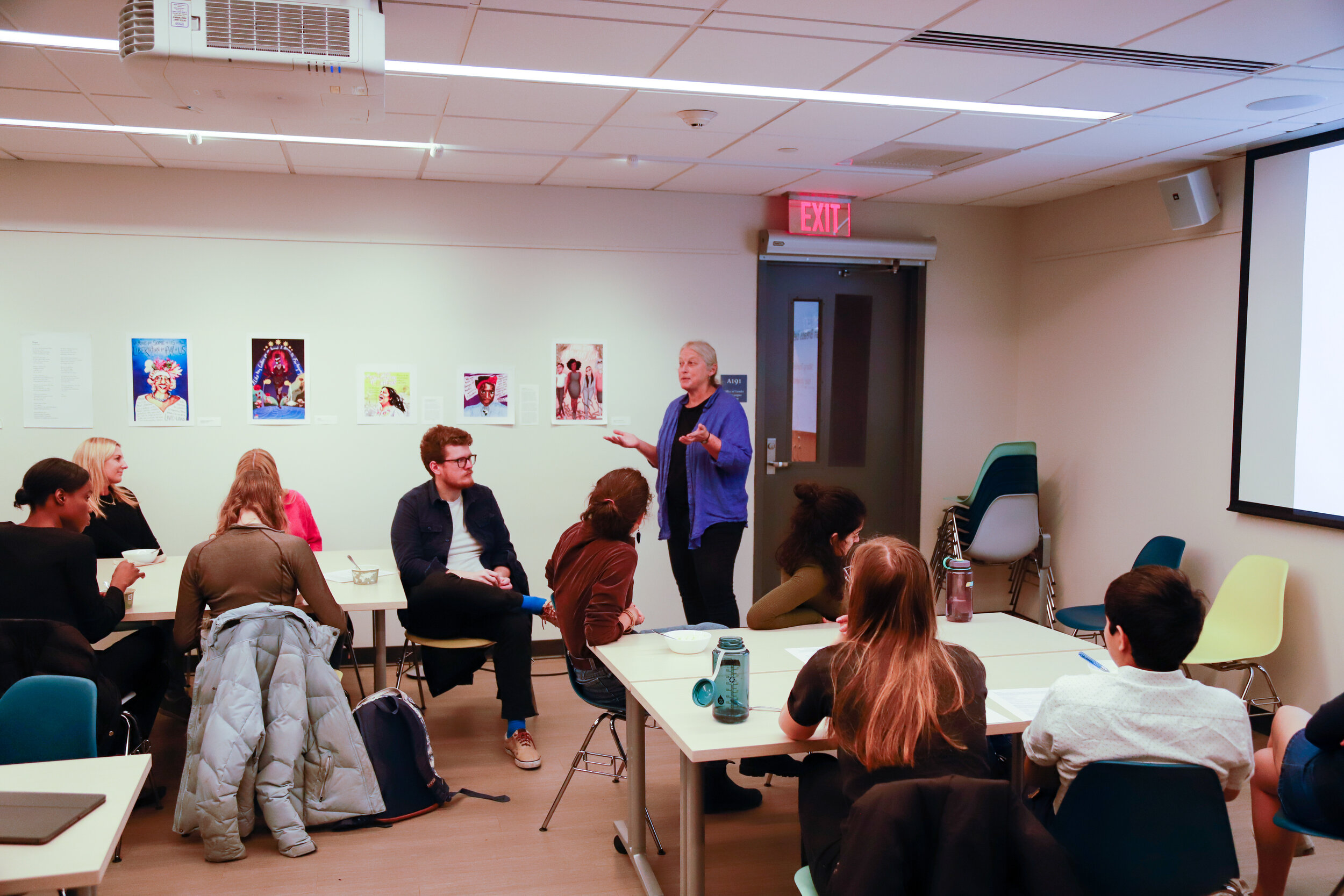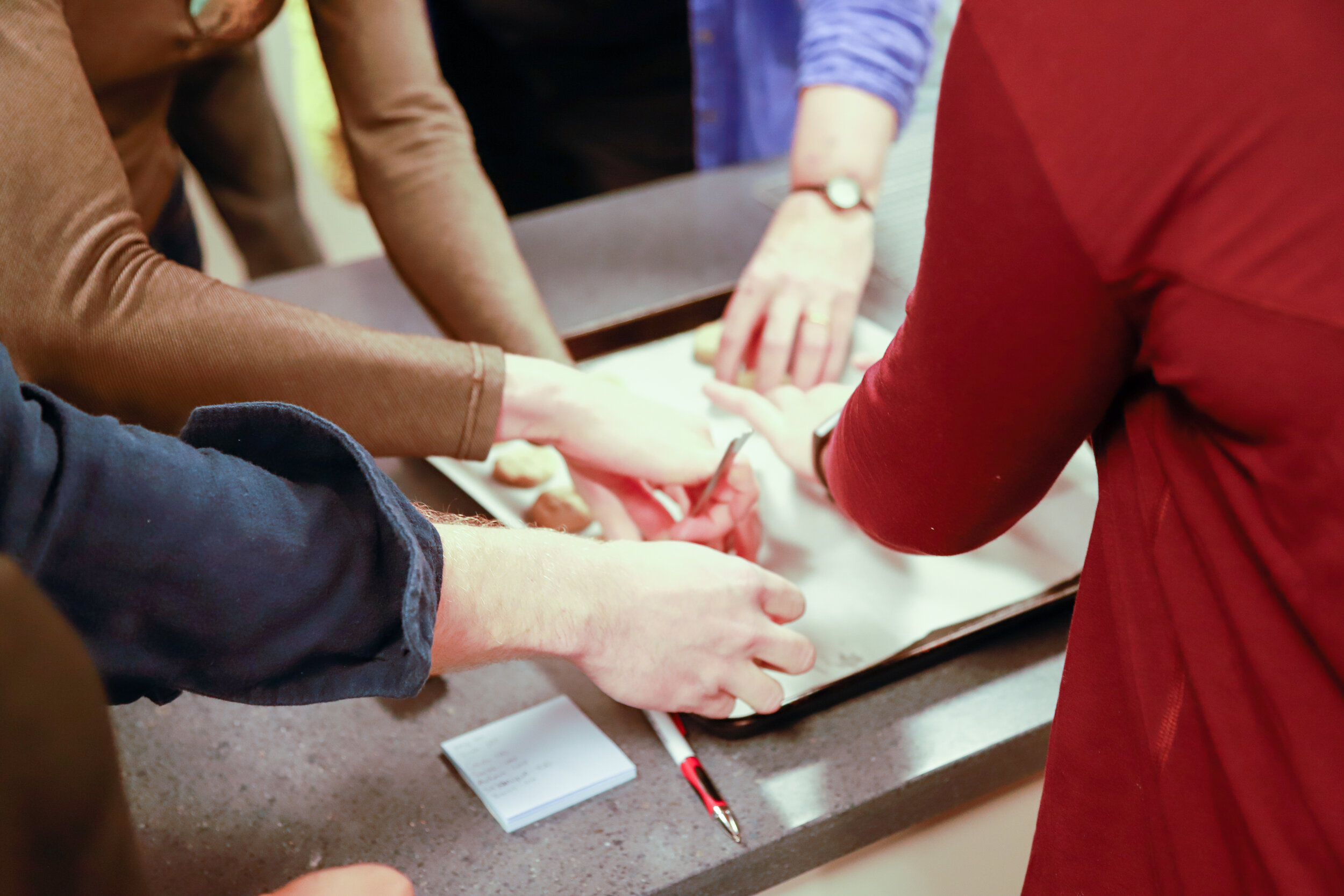The following blog post shares more from Paola Velez during her visit Paola visit to campus as part of the Yale Sustainable Food Program’s “Cooking Across the Black Diaspora” series. A themed line-up for Chewing the Fat, these events were conducted in collaboration with the Afro-American Cultural Center at Yale, and the Yale Center for the Study of Race, Indigeneity, and Transnational Migration.
In doing so, the series commemorated Black History Month, and the 50th anniversary for both the Afro-American Cultural Center (fondly referred to as “the House”) and the Yale Department of African American Studies. Ezra Stiles College and La Casa Cultural also supported Paola’s time on campus.
Paola’s visit included a podcast on Chewing the Fat, lunch and flavor pairing workshop using frio frio (shaved ice) at La Casa, and a public conversation with then Head of College Stephen Pitti at Ezra Stiles.
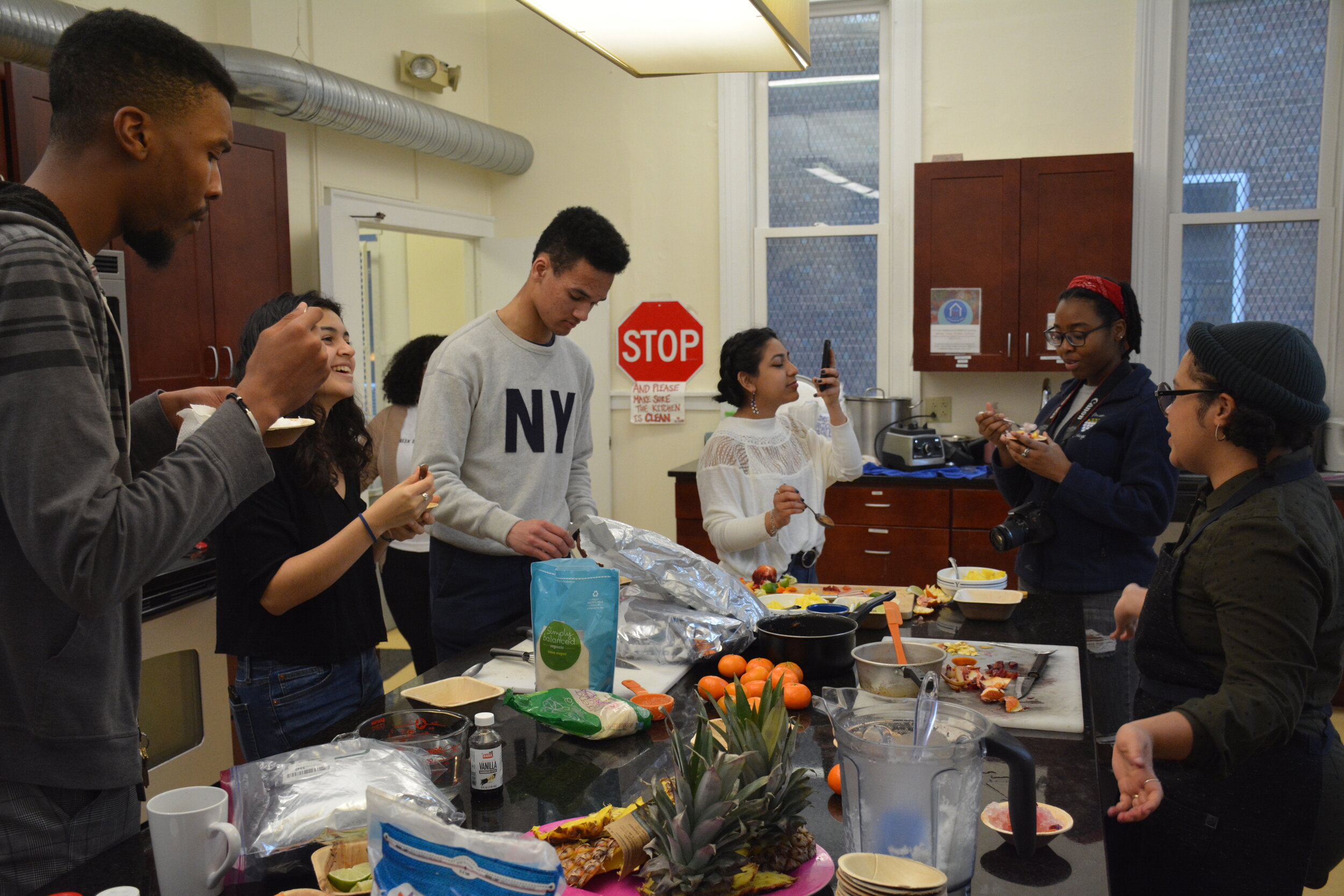
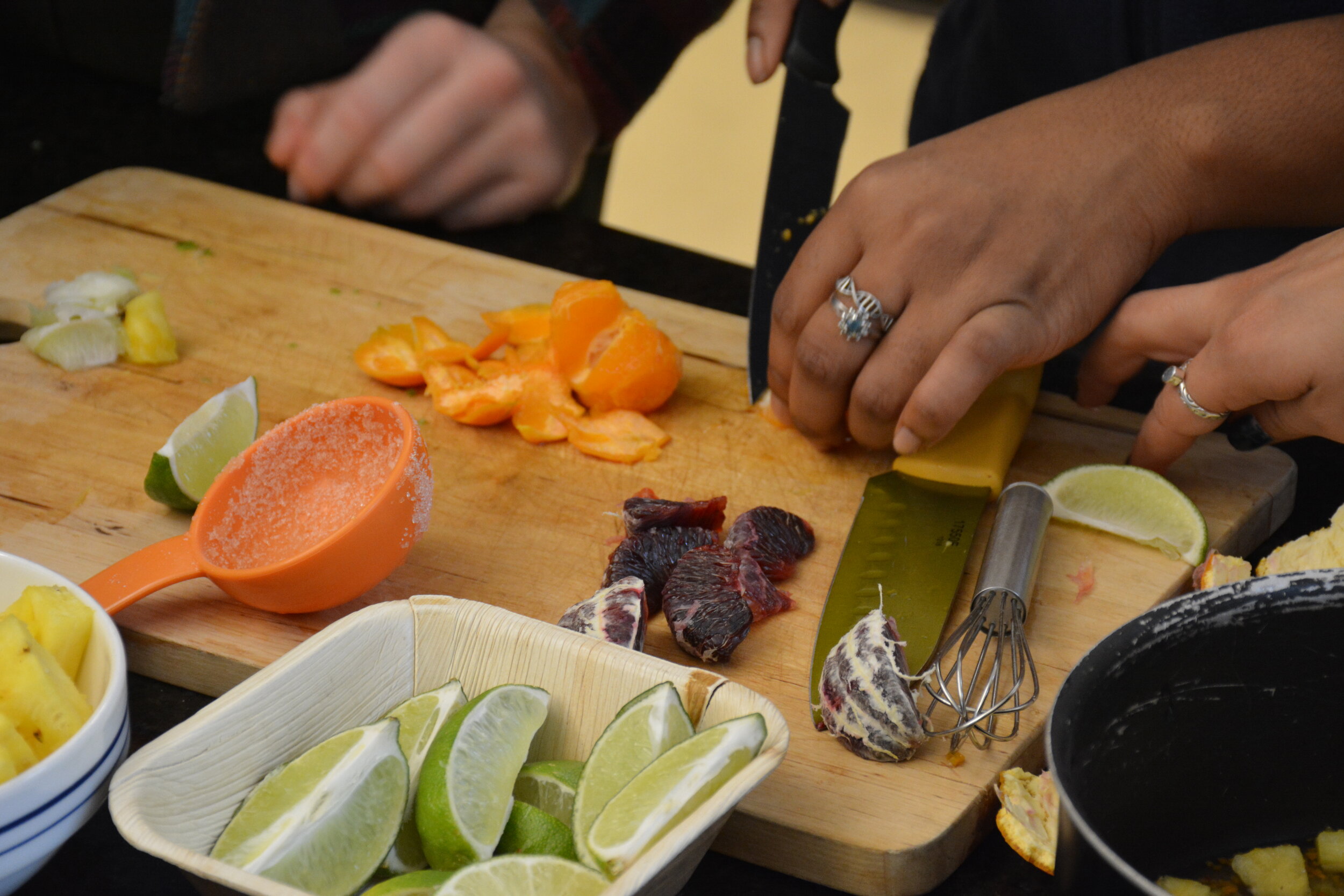
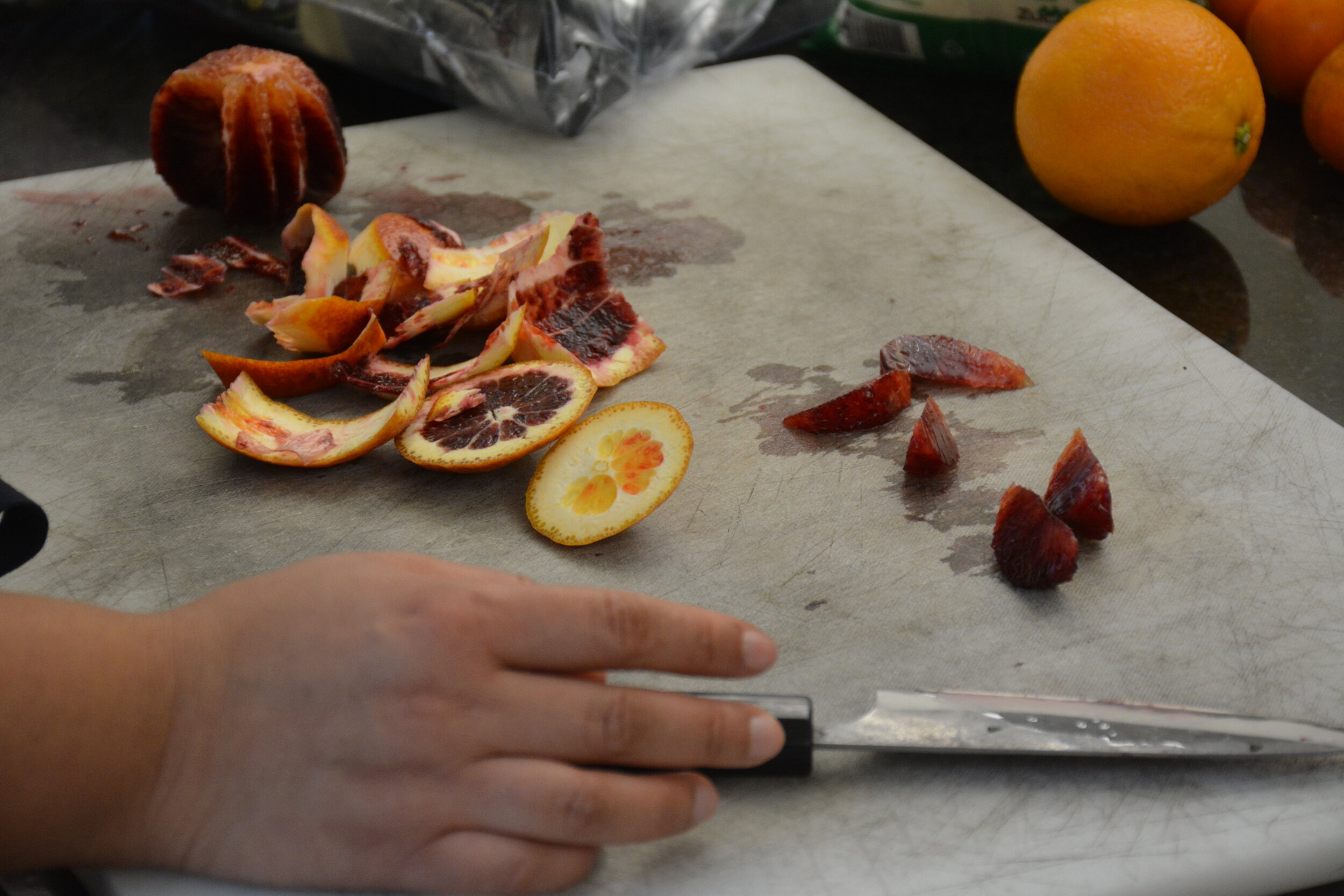
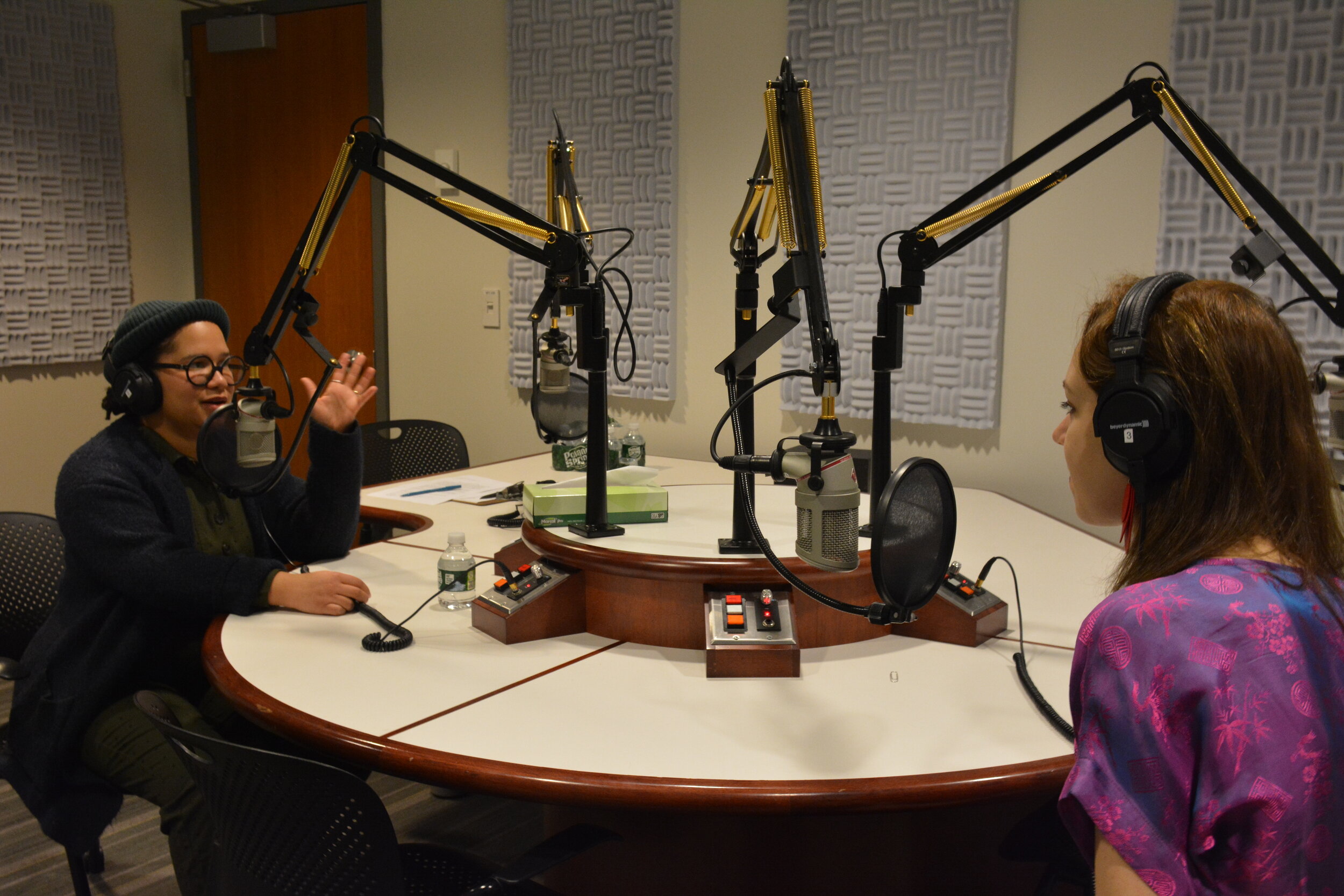
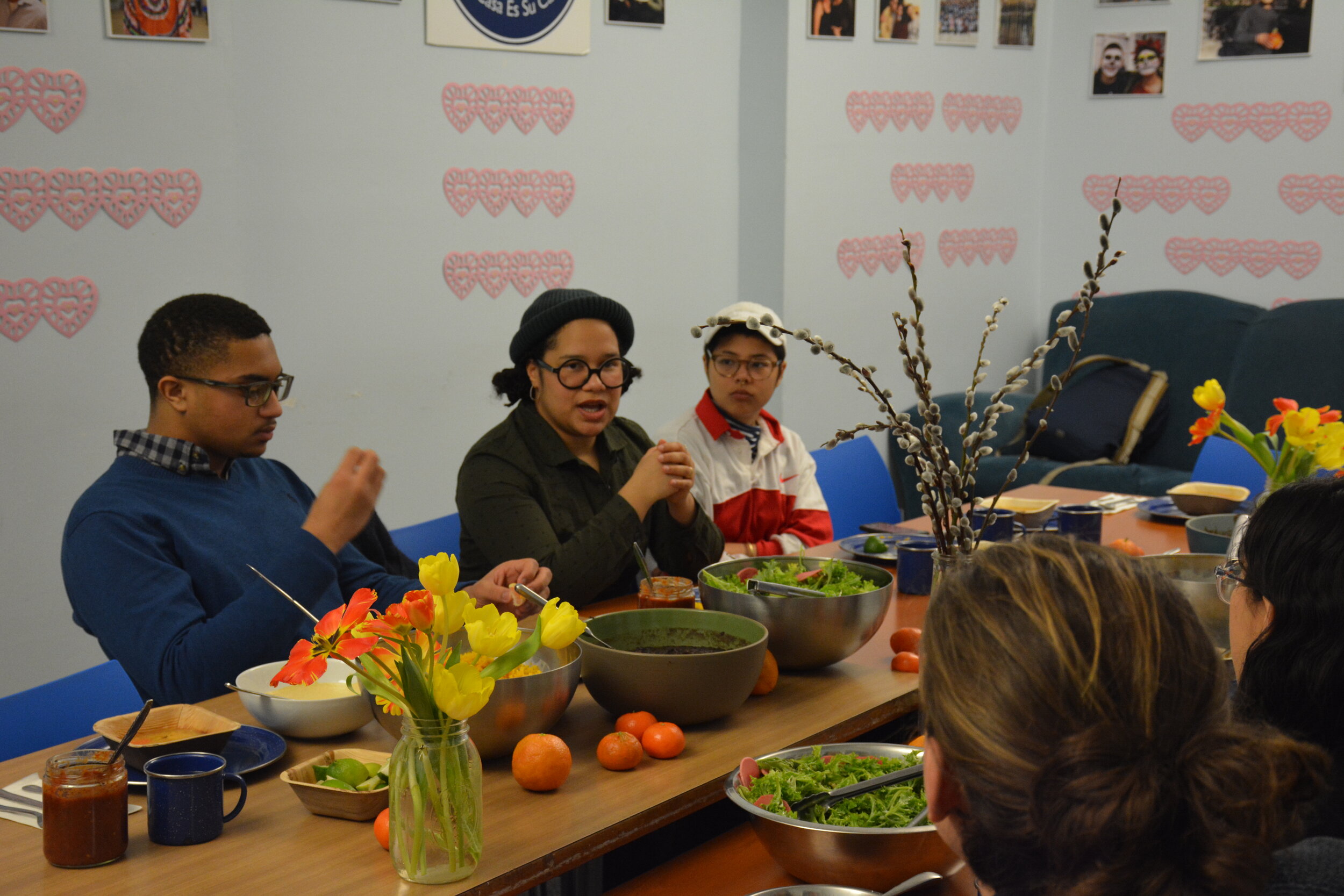
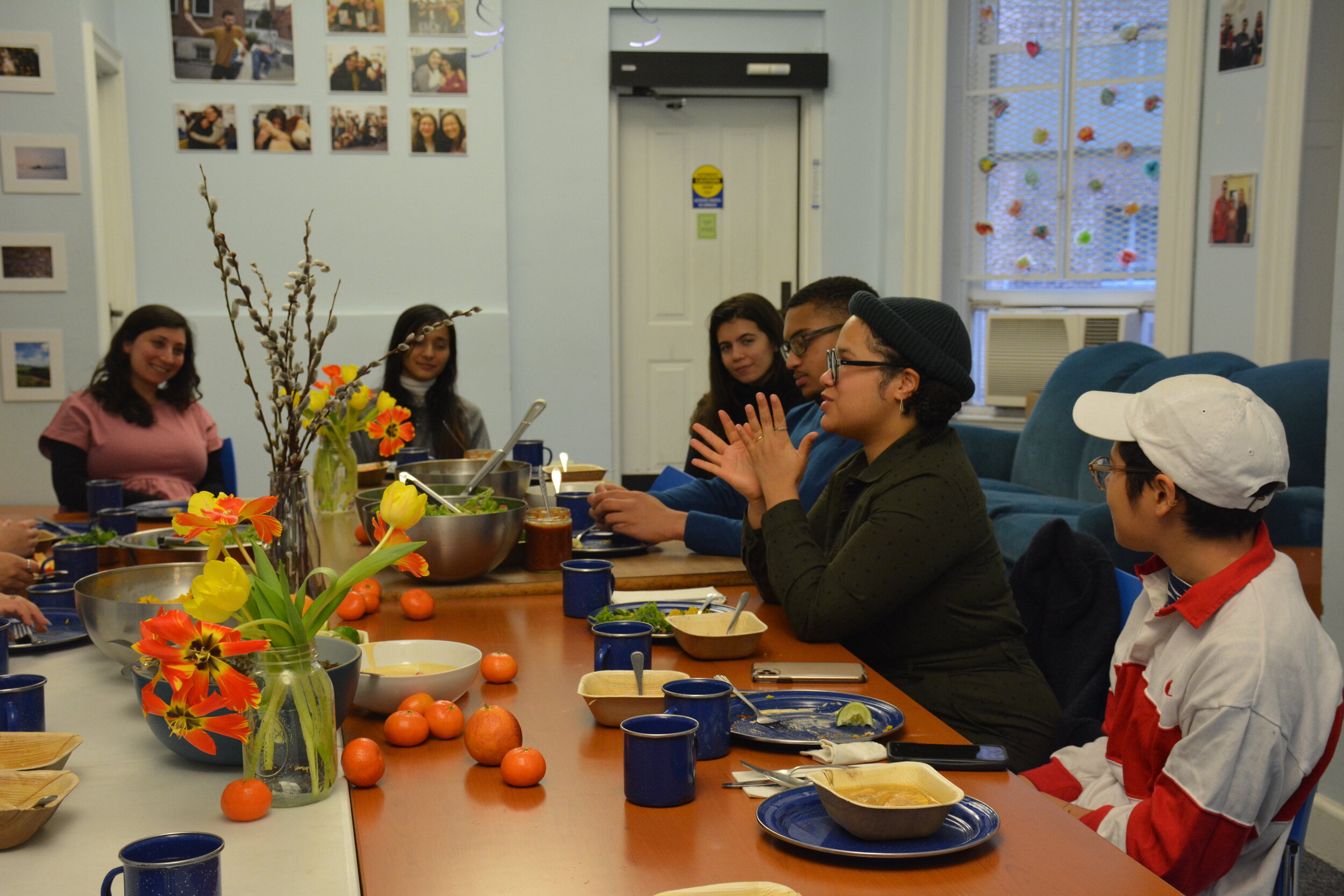

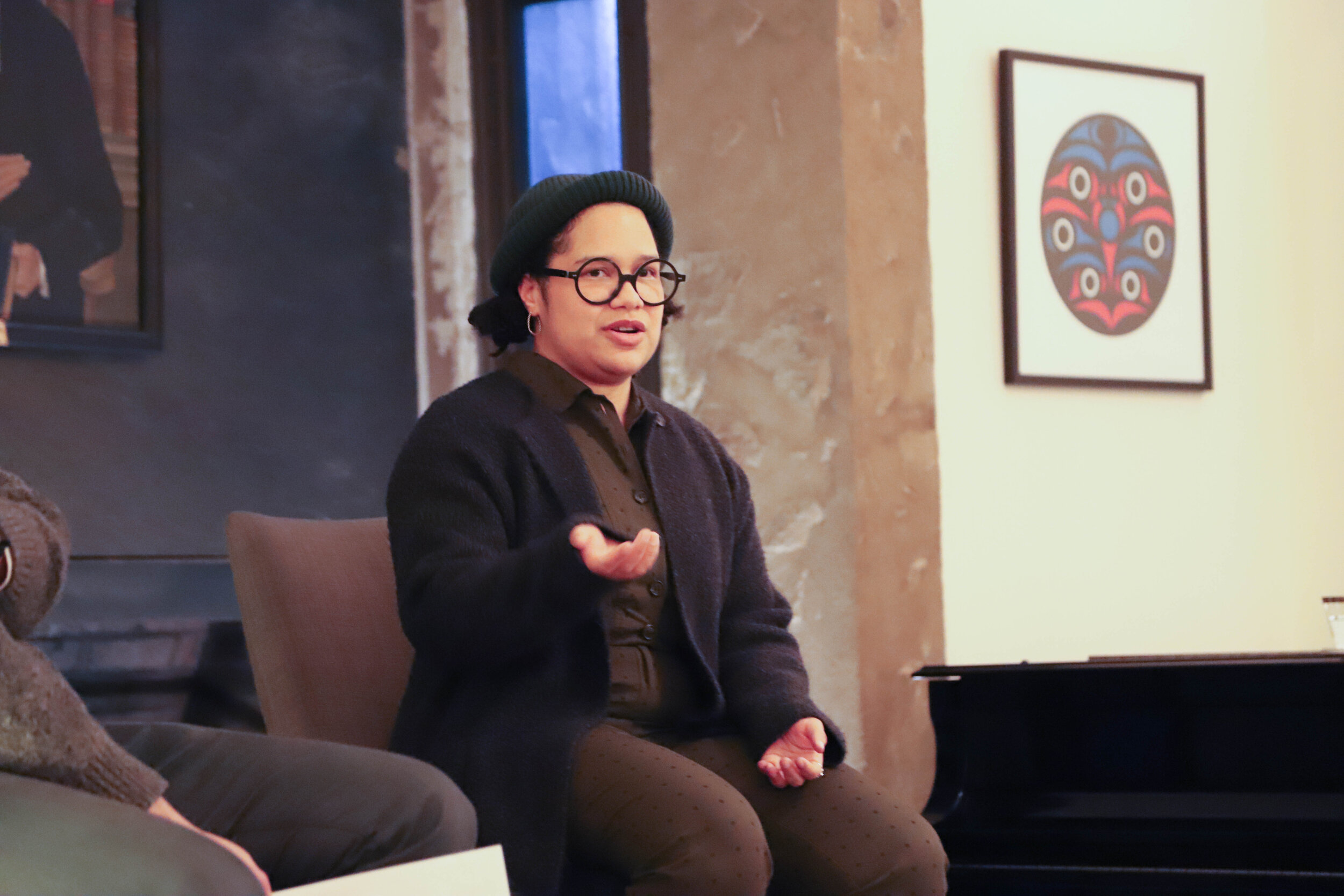
Chef Paola Velez’s earliest food memories are from the Dominican Republic, where she lived with her mother in a sleepy town known for cacao farming. But even after she and her mother moved to the Bronx, she still had strong memories of food. The mothers in their mostly Dominican neighborhood gathered often for their families to share meals. One mother would bring the rice, another the beans, and so on. Until they had enough for everyone. Food insecurity may have affected her childhood, but her community came together to cook together. There she learned hospitality. She learned how to share a meal.
This act of sharing food remains an important ideal to Velez. “It’s the great equalizer: food is that moment in time when we all have to be quiet and eat.” By cooking for people, she is able to direct the conversation that they will have with their food and each other. At the moment, such conversations center the past. Velez may cook with plenty of local Mid-Atlantic ingredients, but she elaborates on their history by connecting her sourcing to anywhere that the African slave trade touched: not only from the Americas, but Asia too. Soy sauce, for example, sneaks into her desserts for a touch of umami.
After all, Velez considers it her duty to cook with history, especially as a pastry chef. Everything associated with dessert, like alcohols, sugars, and fruits, comes from the African slave trade. Her awareness of the cultural significance of her food allows Velez to ask all her patrons to grapple with its violent history.
But she does more than spark conversations about history. She asks people to do something about it. And here, Velez leads by example. As an executive chef, Velez makes a point of hiring marginalized people, especially women of color and trans people. She never had a culinary mentor, but Velez hopes to utilize her position of power to open doors for people like her. To do this, she built a team at Kith/Kin founded on trust and mutual respect. “People need to feel safe at work to succeed,” she explained. She learned how to be a good manager, and teaches those below her the same practices. She asks questions. She listens.
To hear her talk, it is clear that Velez is much more proud of her work with people than her work with food. She spoke excitedly about how she brings a rotating staff with her to banquets and offsite events, so that everyone has a chance to find their future employer and move up in the ranks. Her goal is to train her staff well and have them move on, rising to power in a different restaurant and opening those same doors for marginalized people in their own place of work. Little by little, Velez is creating a community of love in the world for world.
She asks us to do the same. One of the most emotional moments was when Velez explained how much it meant for her to be here, at Yale, talking to a room of aspiring leaders. “I just cook food,” she said, but that food is an entryway point to places like Yale and the people “with the king’s ear, who can mobilize change.” Who she will be voting for in years to come. Who she will be trusting to teach her children. Who will be making policy to make changes for the better. People like us, who go to Yale or work in DC, are the people Velez hopes to influence through her food. She tells us her story in a way we cannot ignore. At least, I hope not. Just like there is no such thing as a free lunch, there is no such thing as an apolitical dessert.


